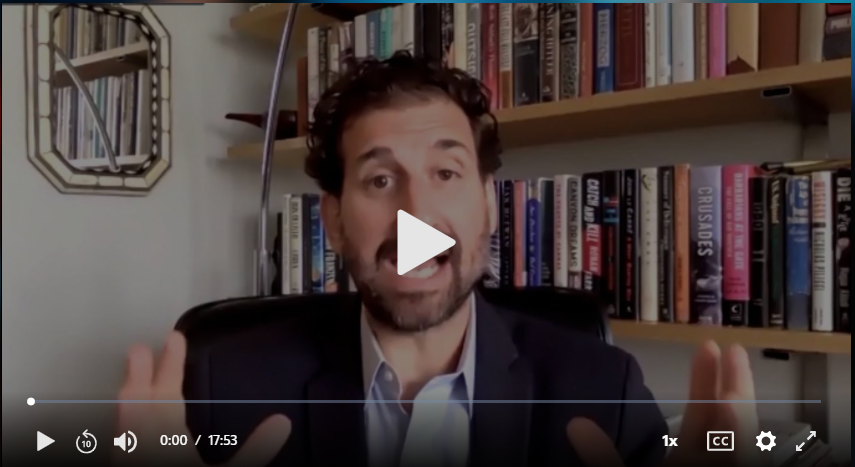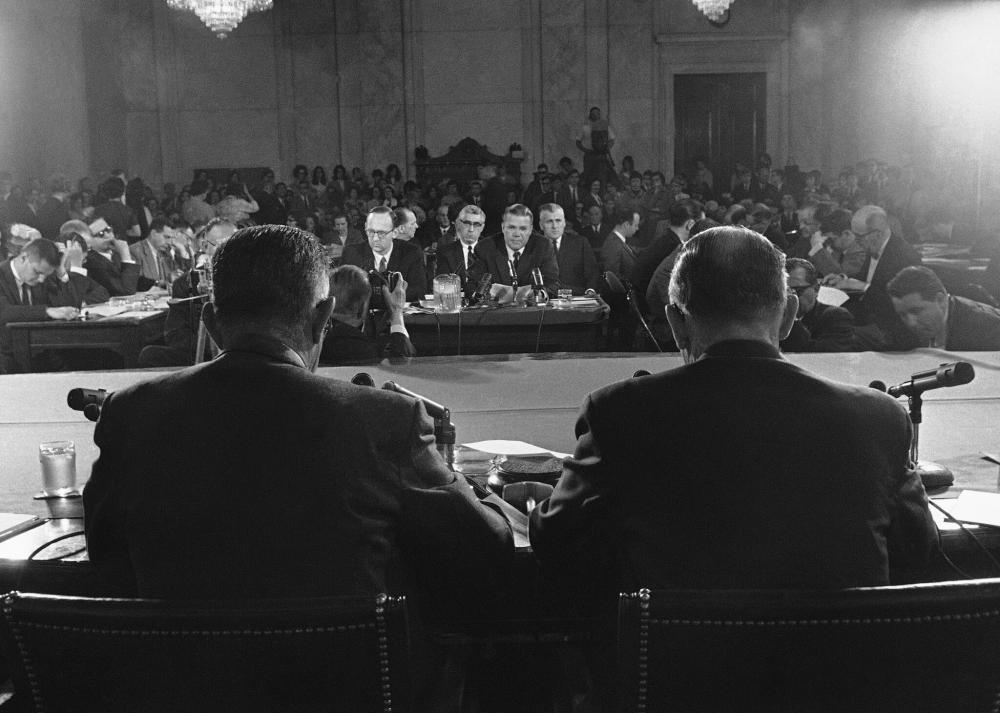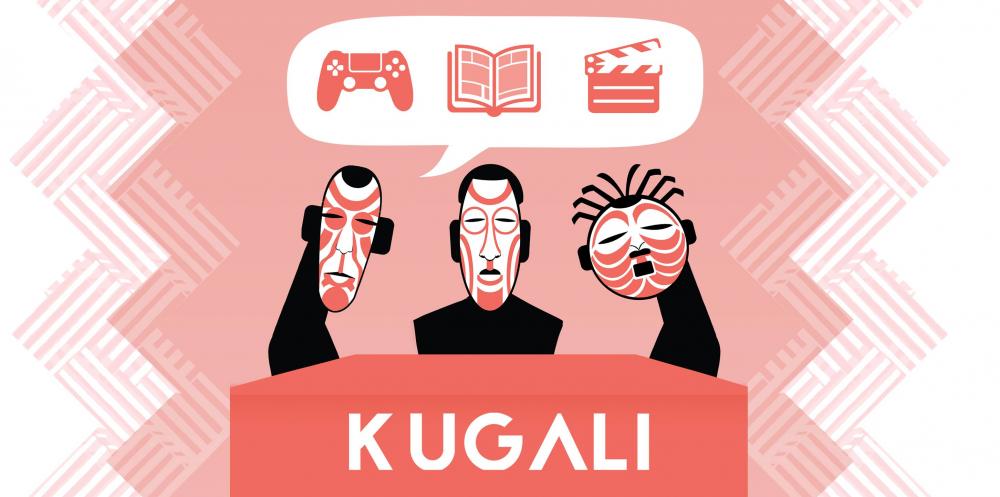-
Posts
2,427 -
Joined
-
Last visited
-
Days Won
91
Content Type
Profiles
Forums
Blogs
Events
Status Updates posted by richardmurray
-

Happy Besooned June Solstice
In the northern hemisphere summer begin, in the southern hemisphere winter begin.
The sun will appear to be at its highest point in the sky in the northern hemisphere, the lowest point in the sky in the southern hemisphere.
In parallel, during the December solstice, in the northern hemisphere it begins winter, in the southern hemipshere summer
The sun will appear to be at its lowest point in the sky in the northern hemisphere , while the highest in the southern hemisphere
EQuinox, the path of the sun crosses the equator of earth extended out into space or the celestial equator.
-

Happy Besooned Father's day, here are two stories to enjoy:)
-

HAppy Juneteenth - enjoy a story
https://aalbc.com/tc/blogs/entry/261-good-news-blog-stories-through-a-year/?tab=comments#comment-908
-
Well... it is another Friday, another day to love, to Oxum, Oshun, Freya, or Venus, another day to Kizomba!
The leg work in this routine is very nice from Sabrina side Fabricia; you have to check out their feet throughout, they worked on the little movements very well; but do not chagrin, they did some standard or flashy moves. -
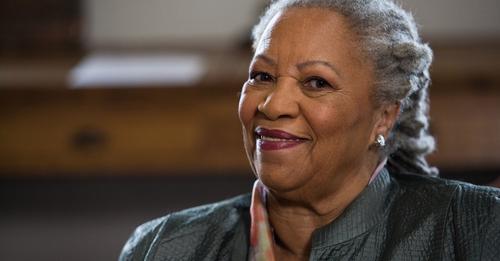
This is the first I am hearing of this though i am not a fan of hamilton anyway but I think what is interesting is how during obama's era, not just his two terms but his donkey primary, the media seemed to be of the agenda of not mentioning dislikes to him so... It can be argued the scrogge needed is obama not miranda. I will never forget about the black woman who merged, lift every voice and sing and the star spangled banner and was criticized heavily for it, and obama didn't do anything to speak for her. I always thought that was foul of him cause he supposedly campaigned on positive integration and yet didn't think that artistic rendition didn't require protection or was valid as a symbol
THE ARTICLE
Toni Morrison is said to have hated Hamilton so much that she helped to finance a play called The Haunting of Lin-Manuel Miranda.
The late author, whose work explored Black identity in America, reportedly made the second-largest donation to fund a play that was written by Ishmael Reed, who is best known for his 1972 novel "Mumbo Jumbo."
Hamilton, the hip-hop-inspired Broadway sensation about Alexander Hamilton's rise, humanizes the founding fathers in a show that's considered emblematic of the Obama years. It was viewed through a different lens during the Trump years amid rising racial tensions in America.
So he penned the play, a rewriting of Charles Dickens' "A Christmas Carol" that portrays a fictionalized version of the Hamilton creator who is is visited by the historical figures portrayed in the musical.
By the end of the play, the fictional Miranda is supposed to see the error of his ways in creating Hamilton."I draw attention to what was left out of Hamilton by giving speaking parts to those who were left out of the narrative," he said.
The Haunting of Lin-Manuel Miranda ran in theatres in New York in 2019, with Reed telling AAWW magazine at the time: "She [Morrison] was the second largest patron of my new play The Haunting of Lin Manuel Miranda."
Morrison, the author of classics like "The Bluest Eye" and "Beloved," passed away in August 2019.Miranda responded to the criticisms of Hamilton in July 2020 when he tweeted: "All the criticisms are valid. The sheer tonnage of complexities & failings of these people I couldn't get. Or wrestled with but cut. I took 6 years and fit as much as I could in a 2.5 hour musical. Did my best. It's all fair game."
Miranda was forced to apologize this week after the release of the movie version of his other musical, In The Heights, was marred with a colorism casting controversy.The film has drawn severe online condemnation for lacking Afro-Latinx representation in the cast.
"I'm seeing the discussion around Afro-Latino representation in our film this week and it is clear that many in our dark-skinned Afro-Latino community don't feel sufficiently represented in it, particularly among the leading roles," Miranda tweeted in a statement. "I can hear the hurt and frustration over colorism, of feeling still unseen in the feedback."
"In trying to paint a mosaic of this community, we fell short," he added. "I am truly sorry. I'm learning from the feedback, I thank you for raising it, and I'm listening."
-

I remember how cornell west or tavis smiley was vilified in some black circles for their opposition and I had in my little neck of the internet arguments. So I am not surprised I am learning of this now. I think like alot of events in the black community, the hollywood movie version is, all black people loved it were in it, the truth is, maybe not even the majority were inspired. ... YEah, I remember, I remember her being attacked online. precancelculture- cancelculture. It seems like she angered everybody, but I never liked that obama didn't protect or support her. I admit I opposed obama as a legislature, but I thought she fit his philosophy better than most. Not HAmilton which is a mockery but a merging of two songs from two different communities. anyway...the following isnt an article but at least it confirms my point
... one thing, latinos come in all phenotypes. Blanco/mulatto/mestizo/negra... I think that truth is one of the problems following
-
-
Live Music in Oakland <Music is Will DOwning - Can't HElp It>
Photographer: Ronald Reed
https://www.flickr.com/photos/ronwired/51180741047/in/photostream/ -
Ask Kobo Anything: Going Global
The Kobo Writing Life team is excited to announce our latest Live Q&A on Thursday June 10th. From 11:00 AM-12:00 PM EST, our very own KWL European team, will be answering all your questions on the Kobo Writing Life Facebook and YouTube pages. Tune in to learn more about expanding your global reach with Kobo! If you can’t make the takeover, feel free to comment on this post with your questions and we can ask them for you!
Enjoy my audiobook
https://www.kobo.com/audiobook/the-visasiki-complete-version -
INFORMATION
KWL Live Q&A: All About AudioAre you considering expanding your catalogue to include audiobooks? We're chatting live with Zack, Kobo's Director of Audiobooks Growth all about the audiobook industry, the future of audio, and what the audiobooks program at Kobo looks like.
Enjoy my audio book
https://www.kobo.com/audiobook/the-visasiki-complete-version -
JEsse Eisinger is a eporter for propublica, for the public, here is his ProPublica page, the transcript to the episode is below for those that want to read and not hear. To hear you can click the image above or the link append to the transcript
TRANSCRIPT
NOW THEY ARE SOME OF THE WEALTHIEST AND MOST POWERFUL MEN IN THE WORLD.
JEFF BEZOS, MICHAEL BLOOMBERG, WARREN BUFFETT, ELON MUSK JUST TO NAME A FEW.
PULITZER PRIZE WINNING PROPUBLICA REPORTER JESSE EISINGER HAS DELVED INTO THEIR TAX RETURNS.
THESE BUSINESS MOGULS ONLY PAY A FRACTION OF THE HUNDREDS OF MILLIONS IF NOT BILLIONS OF DOLLARS OF THEIR FORTUNE.
HERE WE ARE SPEAKING WITH THEM HOW THEY MANAGED TO LEGALLY WORK THE SYSTEM.
THANKS.
JESSE EISINGER FROM POE PUBLICA JOINS US.
THERE ARE ONLY TWO THINGS GAUR AN 250ED.
DEATH AND TAXES.
HOW DID YOU FIND THIS?
WE HAVE OBTAINED -- PROPUBLICA HAS OBTAINED OVER 15 YEARS OF INFORMATION, TAX INFORMATION, TAX RETURNS AND INFORMATION FROM SCHEDULES THAT GO INTO THE RETURNS FROM THINGS LIKE STOCK TRADING, GAMBLING THOUSANDS OF THE WEALTHIEST INDIVIDUALS.
THIS IS REALLY JUST THE 1% OF THE 1%. WE'RE NOT COMMENTING ON HOW WE OBTAIN THE MATERIAL.
WE'RE TRYING TO PROTECT THE SOURCE OR SOURCES.
WE ARE EXPLAINING THAT WE VERIFIED IT EXTENSIVELY AND ARE BEING VERY CAREFUL STEWARDS OF THE INFORMATION.
WHEN YOU LOOK AT THIS, THIS IS A FIRST OF YOUR SERIES OF REPORTS, BUT YOU SEE A GLARING PATTERN HERE.
MOST OF US ANECDOTALLY THINK, WELL, THE RICH PROBABLY HAVE BETTER ACCOUNTANTS, ET CETERA, BUT WHAT YOU'RE SHOWING IS A STRUCTURAL FLAW IN THE SYSTEM.
YEAH.
EXACTLY.
THIS ISN'T ABOUT EVADING TAXES EXOTICALLY AND ILLICITLY, THIS IS ABOUT ROUTINE AND PERFECTLY LEGAL TAX AVOIDANCE STRATEGY.
YOU DON'T NEED A FANCY ACCOUNTANT FOR THIS.
WHAT WE SHOW IS THE SYSTEM AND THE SYSTEM'S ESSENTIAL UNFAIRNESS, WHICH IS THAT AVERAGE AMERICANS ARE STUCK IN THE TAX SYSTEM.
WE HAVE NO CHOICE IN THE MATTER.
WE WORKED TO LIVE, WE HAVE TO WORK.
WE GET SALARIES AND TAXES GET EXTRACTED FROM OUR PAYCHECK.
THE WEALTHY, THE ULTRA WEALTHY ESPECIALLY ARE COMPLETELY OUTSIDE OF THE SYSTEM ENTIRELY.
THEY DON'T HAVE TO TAKE INCOME.
WHEN THEY DO TAKE INCOME, IT'S IN THE TIME AND PLACE OF THEIR CHOOSING AND, THEREFORE, THEY CAN REALLY LOWER THEIR TAX BURDEN OR NOT HAVE A TAX BURDEN AND WHAT WE SHOW IS THAT SOME OF THESE GUYS, JEFF BEZOS, ELON MUSK, MICHAEL BLOOMBERG, CARL ICAHN, THEY ACTUALLY PAY ZERO IN FEDERAL TAXES IN RECENT YEARS.
SO JEFF BEZOS, LET'S TAKE A LOOK AT HIM FOR A MOMENT.
YOU HAVE A CARD ON YOUR WEBSITE.
IT SAYS BETWEEN 2014 AND 2018 HIS WEALTH GREW $99 BILLION BUT HIS TOTAL REPORTED INCOME, WHICH IS DIFFERENT THAN YOUR WEALTH GROWING, IS $4.22 BILLION, THAT'S ABOUT 4% OF HIS WEALTH.
AND ON THAT HE PAID $973 MILLION IN TAXES.
NOW, PEOPLE ARE GOING TO LOOK AT THAT NUMBER AND SAY $973 MILLION IN TAXES.
THAT'S A LOT OF TAX.
RIGHT.
WHAT'S THE POINT YOU'RE MAKING?
RIGHT.
IT DOES -- IT'S AN ENORMOUS NUMBER.
WE CAN'T EVEN CONTEMPLATE THAT NUMBER MUCH LESS THE $100 BILLION THAT HIS WEALTH GREW, BUT THE ESSENTIAL NUMBER HERE IS THAT IT IS A FRACTION, A TINY FRACTION OF HIS WEALTH GROWTH AND WHAT WE'RE ARGUING IN THE PIECE ESSENTIALLY IS THAT WEALTH GROWTH IS THE TRUE MEASURE OF HIS INCOME.
THE EQUIVALENT OF AVERAGE PEOPLE'S INCOME.
AND SO WHEN YOU COMPARE THAT FIGURE, THAT FIGURE OF ALMOST $1 BILLION TO $100 BILLION, IT'S ABOUT 1%. IT'S SLIGHTLY LESS THAN 1%. THE AVERAGE PERSON INCOME WHEN IT'S TAKEN OUT FOR TAXES, IT'S ABOUT 14%. SO THE AVERAGE PERSON MAKING 60 OR $70,000 A YEAR IS PAYING $14 IN TAXES EACH YEAR AND JEFF BEZOS ON THE RELEVANT FIGURE IS PAYING LESS THAN $1.
WHY DO WE THINK THIS IS THE RELEVANT FIGURE?
WELL, EVERYTHING EMANATES FROM WEALTH GROWTH FOR THE ULTRA WEALTHY.
THEY -- ALL OF THEIR POWER, ALL OF THEIR INFLUENCE, ALL OF THE WAY THAT THEY CAN PURCHASE LAVISH LIFESTYLES, JEFF BEZOS IS BUILDING A YACHT FOR HIS YACHT.
A YACHT THAT WILL TAKE HIS HELICOPTERS, WORTH ABOUT HALF A BILLION.
HE BOUGHT THE WASHINGTON POST FOR HALF THAT, $200 MILLION.
IT AFFORDS HIM POLITICAL INFLUENCE.
ALL OF THAT COMES FROM HIS WEALTH.
WHAT'S INCREDIBLE TO US, WHAT'S ASTOUNDING TO US IS THAT ALL OF THIS WEALTH GROWTH IS REALLY OUTSIDE OF THE TAX SYSTEM, ALMOST ENTIRELY BEINGS AND JUST NOT TAXED BECAUSE OF WHAT WE CHOOSE TO TAX IN THIS COUNTRY AND WHAT WE CHOOSE NOT TO TAX.
IN THOSE YEARS YOU HAD JEFF BEZOS FILINGS AND HE TOOK A TAX CREDIT.
IN 2011 HE REPORTED A VERY MODEST AMOUNT OF INCOME AND WAS ABLE TO WIPE THAT OUT WITH DEDUCTIONS AND BECAUSE OF THAT, HE HAD SO LITTLE INCOME HE WAS ABLE TO CLAIM THE CHILD TAX CREDIT FOR THEN 2 CHILDREN, $4,000.
SO HE ACTUALLY HAD NEGATIVE INCOME.
HE HAD CREDIT FROM THE U.S.
GOVERNMENT.
HE WAS THEN IN 2011 CLEARLY ONE OF THE RICHEST PEOPLE IN THE WORLD BUT EVERY DOLLAR COUNTS.
WHERE DO THE ULTRA WEALTHY GET THEIR MONEY TO SPEND, RIGHT?
I MEAN, YOU AND I HAVE CHECKING ACCOUNTS, SAVINGS ACCOUNTS, MAYBE A RETIREMENT ACCOUNT IF WE'RE LUCKY.
WE HAVE AN INCOME THAT COMES EVERY COUPLE OF WEEKS AND WE SAY, OKAY, THIS IS MY BUDGET.
IF YOU'RE SUPER WEALTHY AND YOU AREN'T GETTING AN INCOME, A LOT OF TECH BILLIONAIRES WILL ACTUALLY JUST WORK FOR A DOLLAR A YEAR, WHERE ARE THEY GETTING THAT MONEY?
YEAH, THAT'S A VERY GOOD POINT.
THEY DON'T TAKE SALARIES.
OSTENTATIOUS DISPLAYS OF SALARIES LIKE MARK ZUCKERBERG, SERGEI BRANDON.
WHERE DO THEY GET THE MONEY?
THE ANSWER IS, NOT FOR EVERYBODY, BUT OFTEN THEY'RE BORROWING.
THEY'RE BORROWING AGAINST THEIR STOCKS.
THEY PUT UP THEIR STOCK COLLATERAL AND THEY'RE BORROWING.
SOMEBODY LIKE ELON MUSK DISCLOSES IN A SECURITY FILING THAT HE'S PLEDGED TENS OF MILLIONS OF DOLLARS OF STOCK AND BORROWED AGAINST IT AGAIN FOR TENS OF BILLIONS OF DOLLARS.
AND THIS IS HOW THEY FUND THEIR LIFESTYLES.
THERE'S NO -- WE DON'T HAVE ANY EVIDENCE BEZOS IS BORROWING.
HE MAY BE, HE MAY NOT BE.
NOT EVERYBODY HAS THE SAME HYMN BOOK.
WHEN THEY BORROW THEY'RE NOT TAKING INCOME, THEY'RE NOT SELLING THEIR STOCKS, THEY'RE NOT PAYING CAPITAL GAINS ON THAT STOCK THAT THEY'RE NOT SELLING.
THEY'RE KEEPING CONTROL OF THEIR COMPANIES AND WHEN YOU BORROW, YOU DON'T PAY ANY INCOME TAX ON THE BORROWING.
SO IT'S A WIN WIN WIN IN ALL OF THE WAYS THAT YOU CAN IMAGINE.
SO IF I AM A BILLIONAIRE, I DECIDE TO GO TO A BANK AND SAY, YOU KNOW I'M GOOD FOR IT.
I'VE GOT MULTIPLE BILLIONS OF DOLLARS IN STOCK, WHY DON'T YOU JUST, WHAT, LOAN ME A COUPLE OF HUNDRED MILLION AT 2 OR 3% BECAUSE THAT'S CHEAPER FOR ME TO PAY YOU BACK THAN IT IS TO PAY UNCLE SAM IF I ACTUALLY CASH THAT OUT AND LOOK LIKE I MADE 200 MILLION?
YOU ARE THINKING SMALL, COUPLE HUNDRED MILLION.
CARL ICAHN HAS ESSENTIALLY SOMETHING LIKE A MORTGAGE FOR A BILLION TWO THAT WAS IN HIS TAX FILINGS, AND AS I SAY, ELON MUSK HAS TENS OF BILLIONS AND LARRY ELLISON OF ORACLE DISCLOSED IN SECURITY FILINGS YEARS AGO THAT HE HAD A $10 BILLION CREDIT LINE.
START THINKING A LITTLE BIGGER BUT, YES, BANKS ARE HAPPY TO OFFER THESE GUYS, THEY ARE GOOD FOR IT, AND THEY CHARGE RELATIVELY LOW INTEREST RATES AND YOU JUST ROLL OVER THAT DEBT ALL THE WAY -- SOMETIMES ALL THE WAY UNTIL YOU DIE.
WE'LL GET TO THAT IN A SECOND, BUT THE WHOLE STRATEGY IS ENCAPSULATED BY THE PHRASE BUY, BORROW, DIE.
THAT'S ED McCAFFREY PHRASE, HE'S A PROFESSOR FROM USC.
YOU BUY YOUR ASSETS, BUILD YOUR ASSETS.
OBVIOUSLY BEZOS AND MUSK BUILT THEIR COMPANIES.
YOU INHERIT, THE WALTON AND MARS FAMILIES HAVE INHERITED GREAT FORTUNES.
THEN YOU BORROW AGAINST IT.
THEN YOU CAN EVADE OR ESCAPE OR AVOID -- NOT REALLY EVADE BECAUSE IT'S ALL LEGAL.
YOU CAN AVOID TAXATION AT DEATH.
YOU CAN ESCAPE THE TAX MANEUVERS.
THEN ESSENTIALLY YOUR GREAT FORTUNE HAS BEEN ALMOST UNTAXED THROUGHOUT YOUR LIFE AND INTO DEATH.
HERE'S THE THING.
SOME OF THE PEOPLE THAT YOU PROFILED, YOU MADE BASEBALL CARDS OUT OF WARREN BUFFETT, MICHAEL BLOOMBERG.
THESE ARE PEOPLE WHO MICHAEL BLOOMBERG ON THE CAMPAIGN TRAIL CAMPAIGNED FOR CHANGES IN TAXES.
WARREN BUFFETT FAMOUSLY HAS COME OUT AND SAID THIS DOESN'T MAKE ANY SENSE THAT I PAY LESS TAX AS A PERCENT THAN MY SECRETARY DOES, RIGHT?
SO WHAT DID YOU FIND ABOUT WHAT THEY'RE DOING LEGALLY?
YEAH.
WELL, THAT'S A VERY INTERESTING QUESTION, BUFFETT, BECAUSE WHAT WE FOUND IS THAT NO ONE HAS AVOIDED MORE TAX FOR AS LONG AS WARREN BUFFETT.
AND HE'S REGARDED AS KIND OF GRAND FAIRLY FIGURE.
HE'S BELOVED AND OF COURSE HE HAS COME OUT, TO HIS CREDIT, AND SAID THAT THE WEALTHY DON'T PAY ENOUGH IN TAXES, BUT WHEN HE'S TALKING ABOUT THAT, HE'S TALKING ABOUT IT IN THIS EXTRAORDINARILY NARROW WAY WHERE HE SAYS, TAXES ON INCOME ARE TOO LOW FOR THE WEALTHY AND CAPITAL GAINS TAXES ARE TOO LOW.
HE SAID I HAVE CAPITAL GAINS SOMETIMES AND I PAY A VERY LOW RATE COMPARED TO MY SECRETARY.
HE'S RIGHT, HE PAYS A RELATIVELY LOW RATE.
BUT WHAT'S REALLY EXTRAORDINARY ABOUT WARREN BUFFETT, HE TAKES SO LITTLE INCOME.
HE TAKES TINY FRACTIONS OF HIS ENORMOUS WEALTH.
NOW HE'S WORTH OVER $100 BILLION.
HE TAKES TINY, TINY FRACTIONS OF THAT IN INCOME AND PAYS A VERY SMALL PERCENTAGE OF THAT.
WHEN WE MEASURED HOW MUCH HE PAID IN TAXES COMPARED TO HIS WEALTH GROWTH, HE ACTUALLY PAID 10 CENTS FOR EVERY $100 THAT HIS WEALTH GROSSED.
10 CENTS FOR EVERY $100 THE WEALTH GROSSED.
THE WEALTHY, THE TOP 25 PAID 3.40 DWZ FOR EVERY $100 THEIR WEALTH GREW.
THE RICHEST 25 PEOPLE IN AMERICA.
MEANWHILE, AS I SAY, THE AVERAGE AMERICAN WHEN YOU TALK ABOUT INCOME TAX, WHICH IS REALLY THE WAY THEY ARE TAXED, IT'S $14 FOR EVERY $100 THEY BRING.
IN YOUR ANALYSIS, THE 25 RICHEST AMERICANS SHOWED BY THE END OF 2018, THOSE 25 WERE WORTH $1.1 TRILLION, IT WOULD TAKE 14.3 MILLION ORDINARY AMERICAN WAGE EARNERS PUT TOGETHER TO EQUAL THAT SAME AMOUNT OF WEALTH.
THE PERSONAL FEDERAL TAX BILL FOR THE TOP 25 IN 2018, JUST THOSE 25 PEOPLE, WAS $1.9 BILLION.
THE BILL FOR THOSE WAGE EARNERS, THE 14 MILLION WAGE EARNERS PUT TOGETHER WAS $143 BILLION.
THOSE AVERAGE WAGE EARNERS ARE NOT ONLY PAYING A DISPROPORTIONATE SHARE OF THEIR OWN TAXES, THEY'RE PAYING MORE IN RAW NUMBERS AS WELL TO THE FEDERAL GOVERNMENT.
ABSOLUTELY.
AND THAT ASTONISHING FIGURE WAS DONE BY MY COLLEAGUE WHO HAS WORKED WITH ME ON THE STORY, AND WE REALLY WANTED TO HIGHLIGHT THIS BASIC IMBALANCE, THIS STUNNING IMBALANCE WHERE THE ULTRA WEALTHY CAN DEVELOP ENORMOUS SUMS FROM WHICH, AS I SAID, ALL OF THEIR POWER AND INFLUENCE EMANATES AND ALL THEIR MEANS EMANATES.
THOSE 14 PLUS MILLION PEOPLE ARE INSIDE THE TAX SYSTEM.
THEY'RE PAYING THEIR FAIR SHARE.
WE HAVE STRUGGLED TO ADEQUATELY FUND THE FEDERAL GOVERNMENT.
PERIODICALLY THEY ARE CONVULSED IN FEAR MEDICARE WILL GO BROKE.
ROADS AND BRIDGES ARE CRUMBLING.
WE NEED TO PROVIDE NATIONAL DEFENSE.
IF THE FEDERAL GOVERNMENT IS CONSTRAINED BECAUSE THE PEOPLE WITH THE MOST WEALTH ARE NOT PAYING THEIR FAIR SHARE, THEN WE WANTED TO HIGHLIGHT THAT SYSTEM AND REALLY SHINE A LIGHT ON IT.
THERE ARE A LOT OF WEALTHY PEOPLE, WARREN BUFFETT INCLUDED, WHO SAY I DON'T WANT TO GIVE IT TO UNCLE SAM.
I'M GOING TO GIVE 99.5% OF MY WEALTH AWAY, PHILANTHROPIC GIVING.
I THINK I'M A BETTER STEWARD OF MY HARD EARNED MONEY THAN THE GOVERNMENT IS.
WHAT'S WRONG WITH THAT IDEA?
HE SAID EXACTLY THAT.
I DON'T WANT TO HAVE MY MONEY BEING PAID -- HAVE THE DEBT PAID DOWN TO CHINA WHEN I CAN ALLOCATE IT TO SOMETHING THAT WILL DO MORE FOR SOCIETY.
ONE ANSWER IS, BOY, I WOULD LIKE TO ALLOCATE MY TAX DOLLARS THE WAY I WANT TOO.
I BET MOST PEOPLE HAVE PRETTY STRONG OPINIONS ABOUT HOW THE DUFUSSES IN WASHINGTON ARE SPENDING MY MONEY AND I COULD DO IT BETTER THAN WE DO.
THAT'S WHY WE HAVE ELECTIONS, WHY WE HAVE A DEMOCRATIC SOCIETY.
WE HAVE A SHARED DEMOCRATIC SOCIETY TO ELECT LEADERS TO ALLOCATE OUR TAX DOLLARS THE WAY THE MAJORITY THEORETICALLY WANTS.
THE OTHER THING IS PHILANTHROPY DOESN'T SOLVE THINGS.
PHILANTHROPY FOR THE ULTRA WEALTHY ARE WAYS THAT THEY CAN PUT FORWARD THEIR OWN POLICY CHOICES, TRY TO DOMINATE THE CONVERSATION, HAVE DISPROPORTIONATE INFLUENCE.
SOMETIMES THEY FUND POLITICAL CAMPAIGNS.
SOMETIMES THEY RIDE THEIR HOBBIES AND OBSESSIONS.
IT'S NOT REALLY THE WAY WE WANT TO RUN SOCIETY.
IT'S A DISTORTION OF SOCIETY TO HAVE BILLIONAIRES AND ALSO BE SUBSIDIZED BY TAXPAYERS.
ONE OF THE PUSH BACKS IS GOING TO BE CORPORATE TAXES, RIGHT?
WARREN BUFFETT SAYS BERKSHIRE HATHAWAY PAYS A TON OF CORPORATE TAXES.
WHAT'S YOUR PROBLEM HERE?
IF I HAVE MY MONEY IN THAT, MY CORPORATION IS ACTUALLY PAYING THOSE TAXES, I'M NOT TRYING TO STEAL FROM THE GOVERNMENT.
YEAH, THAT'S A VALID POINT AND THERE'S A LOT OF DEBATE AMONG ECONOMISTS ABOUT THIS.
WHAT I WOULD SAY ARE TWO THINGS.
ONE IS WE'RE IN A GOLDEN AGE OF CORPORATE TAX AVOIDANCE SO COMPANIES LIKE am*zon, APPLE, FACEBOOK HAVE GONE TO GREAT LENGTHS TO MOVE OPERATIONS OVERSEAS AND AVOID AMERICAN TAX.
SOMETIMES THEY ALSO PAY ZERO IN TAX.
SO, YOU KNOW, am*zon IS A TAX AVOIDER BOTH AT THE CORPORATE LEVEL AND AT THE OWNERSHIP LEVEL.
THE SECOND THING IS THAT CORPORATE TAXES DON'T SOLELY FALL ON THE OWNERS OF THE CORPORATIONS.
PROBABLY, THIS IS A MATTER OF DEBATE, BUT CONSUMERS PAY CORPORATE TAXES.
WORKERS PAY CORPORATE TAXES.
AT LEAST SOME ECONOMISTS THINK SO.
SO THIS IS SORT OF DISBURSED.
THAT'S NOT A DIRECT TAX ON THE OWNERS OF THE COMPANY.
NOT A DIRECT TAX ON BEZOS OR MUSK.
SO ONE WAY TO SOLVE THIS WOULD BE TO HAVE MORE DIRECT TAXES ON THE OWNERS OF THE COMPANY.
JESSE EISINGER, PROPUBLICA, THANK YOU VERY MUCH.
-

Unbelievable! Working stiffs pay far more in real term terms — not just as a percentage.
This will not likely change, as the wealthy own or politicians.
Meanwhile our infrastructure is crumbling and millions live in poverty.
-
-
 1
1
-
- Report
-

-
-
Black + Excellent with Quinta Brunson
We sat down to catch up with Tumblr nerd and Queen of Memes, @thequintab < https://thequintab.tumblr.com/ > to talk about everything from fostering genuine communication to her new book She Memes Well < https://www.am*zon.com/She-Memes-Well-Quinta-Brunson/dp/1328638987 > , on shelves NOW (SO GO GET IT---- Like frfr!!). -
Well... it is another Friday, another day to love, to Oxum, Oshun, Freya, or Venus, another day to Kizomba!
I must admit, that dress that Flavie has on is great for the beginning to autumn, the routine from manuel and flavie is not their best. Sultry but not exactly exciting. but that dress. -
Based on the articles length, I will preface my much smaller point. One of many thing not said and spoken about the Vietnam War in modernity, modernity meaning the now, is it prove the masses/the majority/the people don't know the truth. Focus on that, the people don't know the truth. The myth in modern media is the people know, the people assume correctly, how many people project certainty in so many arenas.
How many are certain bernie sanders is a liberal warrior? How many are certain Trump is the antichrist? how many are certain big business is in full control? how many were certain Obama was what the USA needed or was liberal? how many were certain the banks would be saved?
I am not questioning anyones stance in humanity, their politics, thing of the people. I am questioning all to assume for 5 minutes what they now is not the complete truth and then, what does that mean?
Enjoy the articleTHE PENTAGON PAPERS
The Secrets and Lies of the Vietnam War, Exposed in One Epic Document
With the Pentagon Papers revelations, the U.S. public’s trust in the government was forever diminished.This article is part of a special report < https://www.nytimes.com/spotlight/the-pentagon-papers > on the 50th anniversary of the Pentagon Papers.
Brandishing a captured Chinese machine gun, Secretary of Defense Robert S. McNamara appeared at a televised news conference in the spring of 1965. The United States had just sent its first combat troops to South Vietnam, and the new push, he boasted, was further wearing down the beleaguered Vietcong.
“In the past four and one-half years, the Vietcong, the Communists, have lost 89,000 men,” he said. “You can see the heavy drain.”
That was a lie. From confidential reports, McNamara knew the situation was “bad and deteriorating” in the South. “The VC have the initiative,” the information said. “Defeatism is gaining among the rural population, somewhat in the cities, and even among the soldiers.”
Lies like McNamara’s were the rule, not the exception, throughout America’s involvement in Vietnam. The lies were repeated to the public, to Congress, in closed-door hearings, in speeches and to the press. The real story might have remained unknown if, in 1967, McNamara had not commissioned a secret history based on classified documents — which came to be known as the Pentagon Papers. < https://www.archives.gov/research/pentagon-papers >
By then, he knew that even with nearly 500,000 U.S. troops in theater, the war was at a stalemate. He created a research team to assemble and analyze Defense Department decision-making dating back to 1945. This was either quixotic or arrogant. As secretary of defense under Presidents John F. Kennedy and Lyndon B. Johnson, McNamara was an architect of the war and implicated in the lies that were the bedrock of U.S. policy.
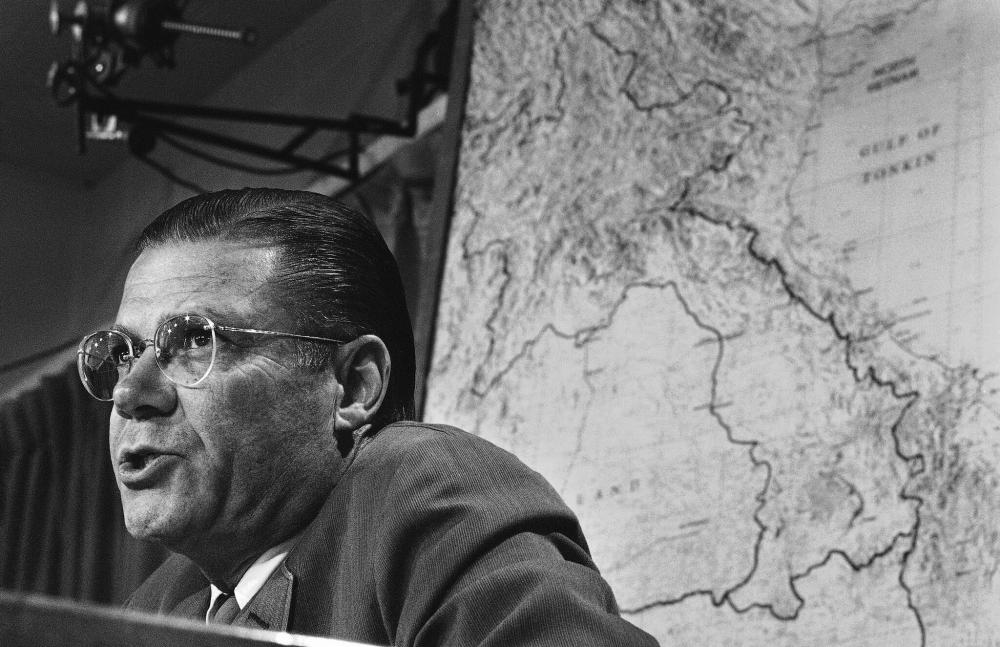
Image
Secretary of Defense Robert S. McNamara addressing reporters at a news conference on Sept. 7, 1967. Two months earlier he had created the task force that would compile and write the Pentagon Papers.Credit...Associated PressDaniel Ellsberg, an analyst on the study, eventually leaked portions of the report to The New York Times < https://www.nytimes.com/2021/01/07/us/pentagon-papers-neil-sheehan.html > , which published excerpts < https://www.nytimes.com/1971/06/13/archives/vietnam-archive-pentagon-study-traces-3-decades-of-growing-u-s.html > in 1971. The revelations in the Pentagon Papers infuriated a country sick of the war, the body bags of young Americans, the photographs of Vietnamese civilians fleeing U.S. air attacks and the endless protests and counterprotests that were dividing the country as nothing had since the Civil War.
The lies revealed in the papers were of a generational scale, and, for much of the American public, this grand deception seeded a suspicion of government that is even more widespread today.
Officially titled “Report of the Office of the Secretary of Defense Vietnam Task Force,” the papers filled 47 volumes, covering the administrations of President Franklin D. Roosevelt to President Lyndon B. Johnson. Their 7,000 pages chronicled, in cold, bureaucratic language, how the United States got itself mired in a long, costly war in a small Southeast Asian country of questionable strategic importance.
They are an essential record of the first war the United States lost. For modern historians, they foreshadow the mind-set and miscalculations that led the United States to fight the “forever wars” of Iraq and Afghanistan.
The original sin was the decision to support the French rulers in Vietnam. President Harry S. Truman subsidized their effort to take back their Indochina colonies. The Vietnamese nationalists were winning their fight for independence under the leadership of Ho Chi Minh, a Communist. Ho had worked with the United States against Japan in World War II, but, in the Cold War, Washington recast him as the stalking horse for Soviet expansionism.
American intelligence officers in the field said that was not the case, that they had found no evidence of a Soviet plot to take over Vietnam, much less Southeast Asia. As one State Department memo put it, “If there is a Moscow-directed conspiracy in Southeast Asia, Indochina is an anomaly.”
But with an eye on China, where the Communist Mao Zedong had won the civil war, President Dwight D. Eisenhower said defeating Vietnam’s Communists was essential “to block further Communist expansion in Asia.” If Vietnam became Communist, then the countries of Southeast Asia would fall like dominoes.
This belief in this domino theory was so strong that the United States broke with its European allies and refused to sign the 1954 Geneva Accords ending the French war. Instead, the United States continued the fight, giving full backing to Ngo Dinh Diem, the autocratic, anti-Communist leader of South Vietnam. Gen. J. Lawton Collins wrote from Vietnam, warning Eisenhower that Diem was an unpopular and incapable leader and should be replaced. If he was not, Gen. Collins wrote, “I recommend re-evaluation of our plans for assisting Southeast Asia.”
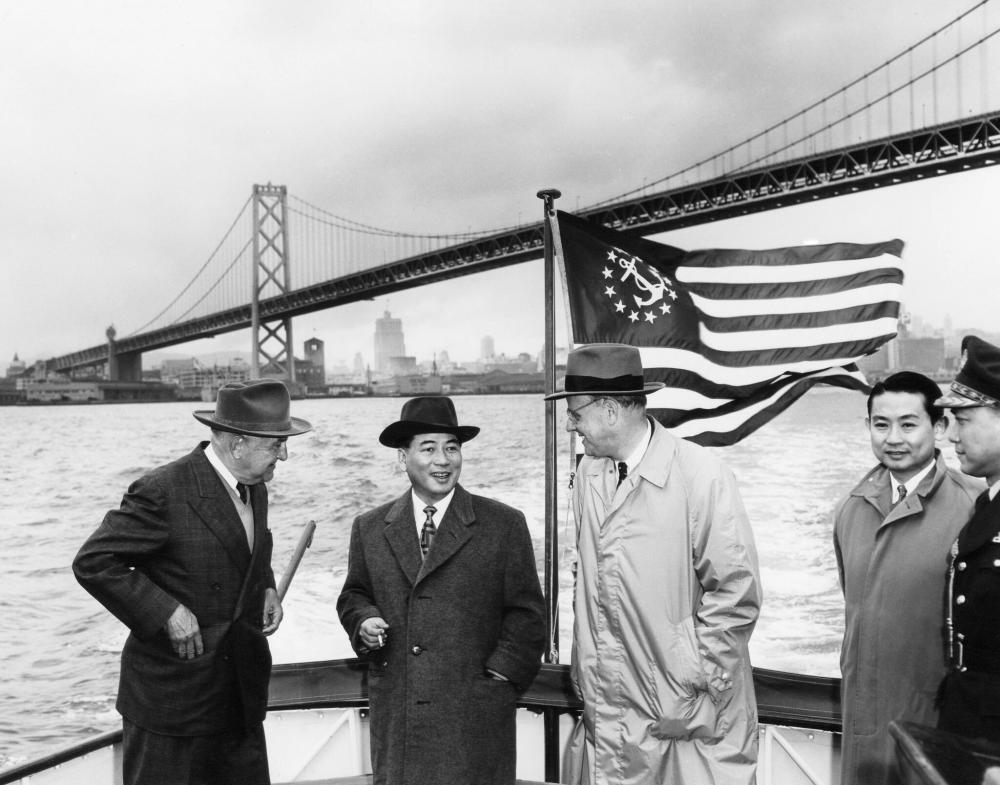
Image
In 1957, South Vietnamese President Ngo Dinh Diem, center, visited San Francisco, arriving on U.S. President Dwight D. Eisenhower’s private plane. Six and a half years later, the U.S. backed a coup that left Diem dead.Credit...Associated PressSecretary of State John Foster Dulles disagreed, writing in a cable included in the Pentagon Papers, “We have no other choice but continue our aid to Vietnam and support of Diem.”
Nine years and billions of American dollars later, Diem was still in power, and it fell to President Kennedy to solve the long-predicted problem.
After facing down the Soviet Union in the Berlin crisis, Kennedy wanted to avoid any sign of Cold War fatigue and easily accepted McNamara’s counsel to deepen the U.S. commitment to Saigon. The secretary of defense wrote in one report, “The loss of South Vietnam would make pointless any further discussion about the importance of Southeast Asia to the Free World.”
The president increased U.S. military advisers tenfold and introduced helicopter missions. In return for the support, Kennedy wanted Diem to make democratic reforms. Diem refused.
A popular uprising in South Vietnam, led by Buddhist clerics, followed. Fearful of losing power as well, South Vietnamese generals secretly received American approval to overthrow Diem. Despite official denials, U.S. officials were deeply involved.
“Beginning in August of 1963, we variously authorized, sanctioned and encouraged the coup efforts …,” the Pentagon Papers revealed. “We maintained clandestine contact with them throughout the planning and execution of the coup and sought to review their operational plans.”
The coup ended with Diem’s killing and a deepening of American involvement in the war. As the authors of the papers concluded, “Our complicity in his overthrow heightened our responsibilities and our commitment.”
Three weeks later, President Kennedy was assassinated, and the Vietnam issue fell to President Johnson.
He had officials secretly draft a resolution for Congress to grant him the authority to fight in Vietnam without officially declaring war.
Missing was a pretext, a small-bore “Pearl Harbor” moment. That came on Aug. 4, 1964, when the White House announced that the North Vietnamese had attacked the U.S.S. Maddox in international waters in the Gulf of Tonkin. This “attack,” though, was anything but unprovoked aggression. Gen. William C. Westmoreland, the head of U.S. forces in Vietnam, had commanded the South Vietnamese military while they staged clandestine raids on North Vietnamese islands. North Vietnamese PT boats fought back and had “mistaken Maddox for a South Vietnamese escort vessel,” according to a report. (Later investigations showed the attack never happened.)
Testifying before the Senate, McNamara lied, denying any American involvement in the Tonkin Gulf attacks: “Our Navy played absolutely no part in, was not associated with, was not aware of any South Vietnamese actions, if there were any.”
Image
McNamara, center background, testified before the Senate Foreign Relations Committee on April 20, 1966. “We should be proud of what we are doing out there for the people of South Vietnam,” he told the committee.Credit...Henry Griffin/Associated PressThree days after the announcement of the “incident,” the administration persuaded Congress to pass the Tonkin Gulf Resolution < https://www.ourdocuments.gov/doc.php?flash=false&doc=98# > to approve and support “the determination of the president, as commander in chief, to take all necessary measures to repel any armed attack against the forces of the United States and to prevent further aggression” — an expansion of the presidential power to wage war that is still used regularly. Johnson won the 1964 election in a landslide.
Seven months later, he sent combat troops to Vietnam without declaring war, a decision clad in lies. The initial deployment of 20,000 troops was described as “military support forces” under a “change of mission” to “permit their more active use” in Vietnam. Nothing new.
As the Pentagon Papers later showed, the Defense Department also revised its war aims: “70 percent to avoid a humiliating U.S. defeat … 20 percent to keep South Vietnam (and then adjacent) territory from Chinese hands, 10 percent to permit the people of South Vietnam to enjoy a better, freer way of life.”
Westmoreland considered the initial troop deployment a stopgap measure and requested 100,000 more. McNamara agreed. On July 20, 1965, he wrote in a memo < https://history.state.gov/historicaldocuments/frus1964-68v03/d67 > that even though “the U.S. killed-in-action might be in the vicinity of 500 a month by the end of the year,” the general’s overall strategy was “likely to bring about a success in Vietnam.”
As the Pentagon Papers later put it, “Never again while he was secretary of defense would McNamara make so optimistic a statement about Vietnam — except in public.”
Fully disillusioned at last, McNamara argued in a 1967 memo to the president that more of the same — more troops, more bombing — would not win the war. In an about-face, he suggested that the United States declare victory and slowly withdraw.
And in a rare acknowledgment of the suffering of the Vietnamese people, he wrote, “The picture of the world’s greatest superpower killing or seriously injuring 1,000 noncombatants a week, while trying to pound a tiny backward nation into submission on an issue whose merits are hotly disputed, is not a pretty one.”
Johnson was furious and soon approved increasing the U.S. troop commitment to nearly 550,000. By year’s end, he had forced McNamara to resign, but the defense secretary had already commissioned the Pentagon Papers.
In 1968, Johnson announced that he would not run for re-election; Vietnam had become his Waterloo. Nixon won the White House on the promise to bring peace to Vietnam. Instead, he expanded the war by invading Cambodia, which convinced Daniel Ellsberg that he had to leak the secret history.
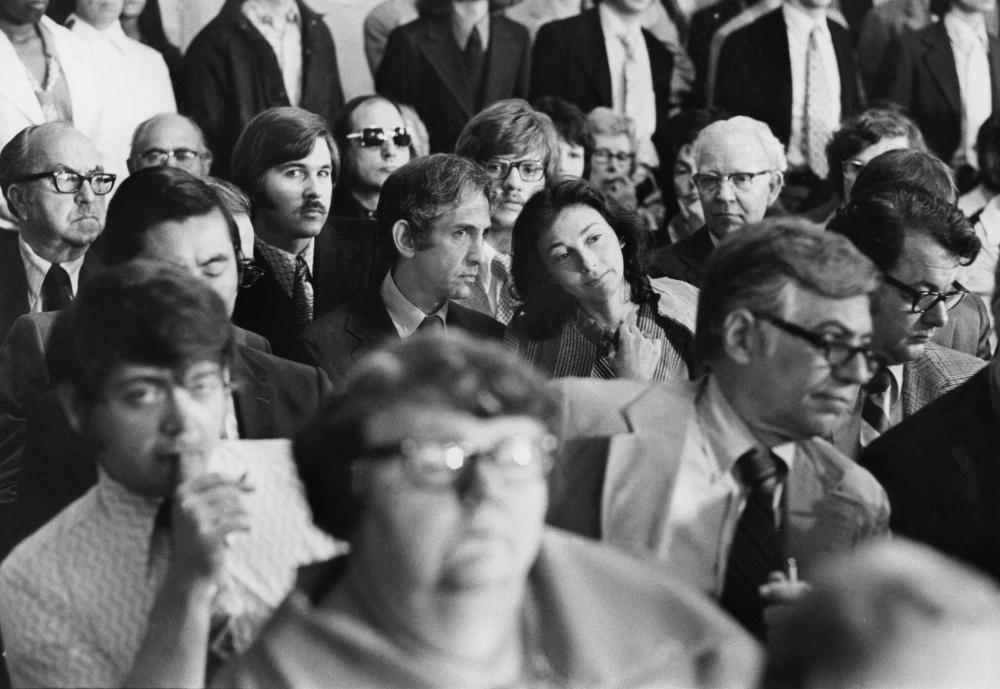
Image
Daniel Ellsberg and Patricia Marx, his wife, center, at the Watergate hearings. Nine months before the Watergate break-in, the so-called plumbers had ransacked the office of Ellsberg’s psychiatrist, in search of incriminating files.Credit...Mike Lien/The New York TimesAfter The New York Times began publishing the Pentagon Papers on Sunday, June 13, 1971, the nation was stunned. The response ranged from horror to anger to disbelief. There was furor over the betrayal of national secrets. Opponents of the war felt vindicated. Veterans, especially those who had served multiple tours in Vietnam, were pained to discover that Americans officials knew the war had been a failed proposition nearly from the beginning.
Convinced that Ellsberg posed a threat to Nixon’s re-election campaign, the White House approved an illegal break-in at the Beverly Hills, Calif., office of Ellsberg’s psychiatrist, hoping to find embarrassing confessions on file. The burglars — known as the Plumbers — found nothing, and got away undetected. The following June, when another such crew broke into the Democratic National Committee Headquarters in the Watergate complex in Washington, they were caught.
The North Vietnamese mounted a final offensive, captured Saigon and won the war in April 1975. Three years later, Vietnam invaded Cambodia — another Communist country — and overthrew the genocidal Khmer Rouge regime. That was the sole country Communist Vietnam ever invaded, forever undercutting the domino theory — the war’s foundational lie.
Elizabeth Becker is a former New York Times correspondent who began her career covering the Cambodia campaign of the Vietnam War. She is the author, most recently, of “You Don’t Belong Here: How Three Women Rewrote the Story of War.”
ARTICLE
https://www.nytimes.com/2021/06/09/us/pentagon-papers-vietnam-war.html
-

At the time of this writing motherlands has eight days to go.
It already made its money to be produced. You can bid anything from one dollar upward. If you want something physical, or nonelectronic to be precise you need to submit at least 50 dollars. I love the graphics , the video intro. It seems good fun.
I will link the twitch gameplay or youtube discussion link under their main website which is linked under the kickstarter URL
Kickstarter
https://www.kickstarter.com/projects/cypheroftyr/into-the-mother-lands-rpg
Diverse games
https://ineeddiversegames.org/
Twitch
https://www.twitch.tv/cypheroftyr
Youtube
https://www.youtube.com/playlist?list=PLAHfidpOmZk8oP58WptCpNfBAWL-yfFFe....
...
If you made it this far, I do have a critique with the article linked at the end of my prose.
I paraphrase the article in brackets
<
B. Dave Walters, the creator of the new setting, and lead designer ,said : “It is a science fiction universe where there is no colonialism. There is no expansionist rhetoric. That is not the root cause of the action.”Charlie HAll , Charlie_L_Hall , the article writer added; DePass did not say the following.
Instead, the Musalians and Vutoa’s existing populations coexist all around the planet, in high-tech urban centers as well as strange alien landscapes. When conflict does arise, it’s often about two or more groups competing for scarce resources.B. Dave Walters continued: “We wanted to do something different, where diversity was a foundational idea, ... Black excellence was a foundational idea, so we came up with a premise that would allow lots of different kinds of people of color to have a place where they flourish and are at the center stage rather than being in addition to, or as a ‘noble savage’ or something that was bolted on to the side [of a Euro-centric universe]. It is an expansive sci-fi epic.”
>
The article admits they are using systems that the owner of Dungeons and DRagons use so I imagine , financially a synergy. And , the article reveals other wise financial choices or managements by the black creators of this gaming universe.
...
My issue is, if the words from the article are true, a question. If resources are scarce, ala a purpose to competitiveness in the game, then how can colonial or expansionist or anti-multiversity or pro-monoversity be denied or absent? It makes no sense. The article subtitle refer to black panther or star trek. But, Black panther's anti expansionism is , to be blunt silly. I can comprehend Wakanda not feeling the need to expand to cairo or to great zimbabwe. But, when the portuguese were infiltrating the Kongo empire and enslaving the geographic neighbors to wakanda, even in the black written Black Panther Film script, the Wakandan anti expansionist policies make no sense. When Belgium was given Congo, by the british, explain to me how the highly educated or knowledgeable wakandans didn't think it was wise to expand? tradition. Please. And Star Trek, another story written by a white person, provides a world with no material need after clone wars or et cetera. So, Star Trek universe didn't achieve the anti imperial stance, from an initial source. But, in Wakanda or Star Trek, at least the issues of colonialism or expansion arise. By what the lead developer said he wanted a game where expansion or colonialism are blockaded as ideas. I don't buy that world honesty, but it is a video game, so PLEASE BUY IT and enjoy.
Article
https://www.polygon.com/2021/6/10/22528001/mother-lands-afrofuturist-tabletop-rpg-tanya-depass-b-dave-walters-interview?fbclid=IwAR0FSyJ_GsyGz7s5BnJX2rfNTRSBkmvaXb-3__Chjj1GJ_52bYWtj26GcJE
Image info
The city of Malisuuna, founded by the descendants of African Emperor Mansa Musa’s expeditionary fleet. Image: Mother Lands RPG -
Depending on when you saw this the Eclipse will be between 4:12 am to 9:11 am est or was between 4:!2 am to 9:11 am EST , EST is UTC-5
-
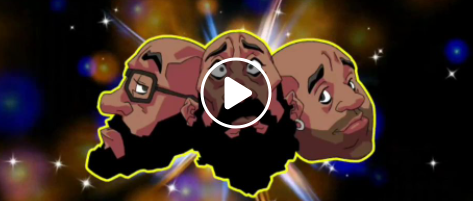
News, Politics and Super Hero Culture From A Black Man's Perspective
if you are not going to pay for 247 then try the facebook
-

My thoughts as I read EUgen Bacon's prose, titled, An Earnest Blackness
I Quote Bacon in brackets
<Decades after the ground-breaking work of speculative authors such as Toni Morrison, Samuel R. Delany, and Octavia Butler, Black speculative fiction is more visible and more thriving than ever. Through invented worlds and technologies, and incursions of the supernatural or the uncanny, more and more Black speculative fiction authors are offering stories of curiosity, diversity and hope, possibilities, probabilities, even dire warnings about our place in the universe. >
Near a century after the work of Zora NEale Hurston, Alice Dunbar Nelson, Langston Hughes or many others, Black fiction creators are , to paraphrase Hughes, in vogue again. It must be comprehended, the reason why Black fiction is more visible or black fiction creators are thriving more today is not because Black owned media venues are providing the avenues to such growth. It is because of white owned media venues allowing black creators the chance. Never forget, the Nat King Cole show by the standards when it ran was the most listened to program, but the show couldn't find a sponsor. That ends my point about the issue being white media outlet owners changing their views, not black creators doing anything different.
I am happy for Toni Morrison or Octavia Butler or any black artists gaining or growing in fame before or after death. And I comprehend Bacon wants to emphasize the now very much in this prose.
I will question how eager he is to promote the now with alternative history. I quote him in brackets
< And now, more than ever, people of colour are increasingly adopting Black speculative fiction — in stories of possibility — so they too can surrender to the air, and ride it. >
More than ever? Historically he is by default false. Before the Islamic|Christian|European|White imperial movements against Black people of Africa|Asia|America Black people were emersed in Black cultures. To rephrase bluntly, before white people's imperial agendas enslaved black people's , Black people were totally emersed in Black speculative fiction through the various myths, legends, tales of the various people.
One of the biggest walls Black fiction creators, moreover all black artists, have to destroy is the wall of black equaling africa. I quote Bacon.
< Black speculative fiction, often featuring a Black protagonist, gives voice to the complex and varied experiences of African and Afro-descendant peoples. What Africa means above all is diversity, with its 54 countries, its many languages—including Swahili, Amharic, Yoruba, Oromo, Hausa, Igbo, Zulu, Shona, and over 2000 more—and its 1.126 billion people. And that’s just on the continent, before you factor in the diaspora, which—as in the African Speculative Fiction Society definition—refers to people whose ancestors migrated or were snatched from the African continent, and includes anyone of African descent in Europe, North America, South America, Asia, the Antarctica, Australia, Oceania and elsewhere. Black speculative fiction confronts the colonial gaze which tries to see only uniformity and sameness. >
What is black? Black is many things. Concerning race, Black is a phenotypical label. What is a phenotypical label? it is a label referring to appearance, or how one looks. The Black protagonists should do more than give voice to african or afro-descended black peoples. why? not all africans are black. Before european conquest not all africans were black. All black people were never african. The Carib of the caribbean, the Cree of the southeastern area of modern day U.S.A., the negrito of south east asia, the aborigine of australia, are black while none are african. His definition above neglects participation by Black people's who are not afro descended or of a diaspora from africa. And don't be cute reader, the progression of humanity before the modern phenotypes began, can not be used; by that reasoning all human beings are not african, all humans beings are ethiopian. So, please.
Black is greater than african. African is not only black. Said truths are the weapons to get through the wall of black equaling african, a similar wall suggest white equals european. Each artist will relate to said walls in their own work. All I can do is hope Black artists globally cognize the walls exist and use the tools to bust through them.
Lastly, the word is multiversity, not diversity. Diversity means a thing of two spaces, a dichotomy like white and black. But multiversity means a thing of many spaces, at least two or to infinity. his prose after the quote immediately above prove my point.
Bacon showcases work for the next section of the prose. I fully support anyone buying the work of these various artists:in the story collection tales of Wakanda, Okungbowa whose work I wish Ousmane Sembene could make into film,
I must say the star trekian prime directive foreign policy of Wakanda, originally written by a white man, is one of the most dysfunctional elements in a fiction work. Why? More than Killmonger's speech of where da Wakandans at... what Black people can watch the black villages right outside their borders, somewhere around the modern day Congo forest, be taken completely by whomever. Wakandan's literally watched all their neighbors taken. More than where the Wakandans at, the question is, how the Wakandans can watch that. Is it like the purge television thing?
The following sector deals with colonialism and its influences. He quotes Ngũgĩ wa Thiong’o. I will provide a partial quote in brackets. You have to read the article for the entire quote.
<We spoke Gĩkũyũ in the fields. We spoke Gĩkũyũ in and outside the home. I can vividly recall those evenings of storytelling around the fireside. It was mostly the grown-ups telling the stories but everybody was interested and involved. We children would re-tell the stories the following day to other children… >
Earlier in my prose I used the word imperial. Colonialism is about the effects of a potential or true empire has on a conquest. The word provence comes from the Roman empire; their first conquest was called the provence, and after that all they dominated had that label. So much so that the word survived after the roman empire , in my view, died with the end of the ottoman empire.
Why do I say this? I will quote Bacon again in brackets
<wa Thiong’o asks crucial questions and contributes to the fight against colonialism, which robs the colonised of name, language, community and value. Ngũgĩ wa Thiong’o’s Decolonising the Mind is a firm but earnest conversation many a once-colonised people will understand. Colonialism turns diversity into division and strife (divide and rule is a colonialist dictum), and fosters violent instability. Colonialism operates both in the external world, and in the mind, stripping away language, community and culture, where culture is food, family, clothing, housing, belief, ways of doing, ways of seeing. >
When you look at the French people, before the Roman conquest of Gaul they were called the gauls. It would take one of the phase shifts of the roman empire and the commonly called viking community in the Gaul to create the French. That alone proves the first point, and that is in a european historical context. Let alone, the conglomeration of Black African governments that today are called Cote d'Ivoire or Ivory coast or similar none White or European examples.
But he makes a second assertion I wish Thiong'o will reply to. Do Empires turn the multiversity in their conquest into multivision or strife? That is a big question. I can safely say that empires will breed strife/segregation/negative integration into potential conquest or current conquest to maintain or have power. BUT, do empires initiate it by default as Bacon suggest Thion'o states? I am not certain.
Look at Yugoslavia, from the Soviet Empire. When the Soviet empire fell, Yugoslavia broke apart but the truth is, the Yugoslav people were never one people. The Soviet empire chose to call them one people. In the same way, Black or White or Native people in the USA are cheaply called American , as if all three peoples are seamlessly on the same page. Many empires like to suggest multiveristy is oneness, when in truth it isn't and the strife between people's is more inevitable than empire craft.
Bacon ends with a very honest or truthful note. I will only amend, Birth of a Nation from Griffith is speculative fiction too. And like the Black Panther, it proves that entertaining the audience with the storytelling , is more important to the vitality of the artists as a laborer than their cultural presentation. -
My Thoughts on Movies That Move We discussion on Harlem Nights
Eddie did get lucky, and to be blunt, time was of the essence, anumber of comedy movies of that period, like caddyshack united comedians of a certain age who were soon to be deceased. so... in terms of purpose, I think he wanted to do a number of things, be on screen with his elders, do a film with mostly black people in suits, have a cast of black characters that had all the cultural variance often not provided by white led productions. ala same with coming to america. In the end of the day, the monied classes of any community dictate the media. For the black community, not merely in the usa but globally, who don't have a financial elite based on enslavers/murderers/prohibition era gangsters/ or the myriad of others using criminal or illegal financial schemes that the white community has been totally privy too, we have to rely on those who earned their money fairly to be our rockefellers/duponts/jp morgans/carnegies/kennedy . I live in NYC, all those names I just mentioned had a history of criminality/illegality/violence that most black people will say is , doing bad. But, those same names financed the museums/art galleries/opera houses all the arts of NYC. All the arts of NYC was financed by all the rich white people who made their fortunes doing a lot of bad. Black people don't have those people in our community. The largest financial criminals black people get are drug dealers every decade or two with four corners. No way near the volume of pop rockefeller. So, black people have to rely on the black rich who are all from labors. Black athletes/entertainers/singers/small business chain owners like the brother who helped finance MLK jr's activities. But we don't have someone to finance a whole film studio+theater chain+ advertising network from scratch. So, black people like Eddie Murphy/oprah winfrey/poitier/denzel/et cetera , no matter what any think of them , through their attempts in the white owned media industry of the usa, which isn't a rude or mean thing to say, get whites to produce or have enough pennies to produce things like harlem nights, where black people can see a glint of what black owned media would had provided for centuries if possible/allowed.
-
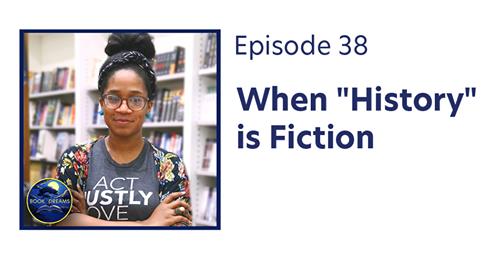
My thoughts as I listen to Episode 38 , when history of fiction of the BookDreams Podcast, Bethany C Morrow
1:45 they say this interview deals with the challenges of speculative fiction writing when it comes to race
3:03 the ask about her new book related to little women
Morrow calls the book a remix. Morrow speaks on elements that signify her book relates to Little Women. Her books plot or characterizations is not similar. She says she never liked Lorie.
Her book is on roanoke island, free people of color, before civil war.
5:11 Morrow uses the word strange to describe the temporal period in the usa when you have black people in a state in the union that are free while other black people are enslaved. She used the word strange. Strange to some in modernity but to few in the past. Slavery must be comprehended as something that has not ended, never ended in humanity. Slavery exist today. It is a modern mythology that slavery died. Slavery no longer became legal in western european governments but that does not mean slavery ended in humanity. I argue slavery is alive and kicking. So having a people be one part enslaved while the other part free was not a strange thing for people in the past, in most places in humanity and even today it isn't strange. You take the usa out of the equation and I think slavery in various ways shows a permanence. So, I think the phrase, Statian Estrangement is better than strange. The issue of this talk, which I have not fully heard while typing this comment is about history in fiction. I think sometimes we all like to see what we want to see.
5:26 she is tired by the strict dichotomy of union / confederates by white authors. Though I think people today don't know how tribal that war was, based on the after years. The often used phrase, brother faced brother was real. The best way to explain the war between the states from a white perspective is the presidencies of Obama AND Trump. In both presidencies , white families grew/gained/were destroyed by internal splits based on the existence/narrative/identity of either president. She should had focused on the variance between usa history based on who you are. THe USA has three elemental groups: Indigenous or Native, White, Black . The Indigenous group is not a phenotypical group, it is a group of ancestry. White or Black is phenotypical. Now in modernity , all three of these groups have a much more complex internal makeup than during the war between the states. But, each group mentioned had a varying relationship to the war between the states. For Whites it was, kin vs kin. Thus why , the daughters of the american revolution had such momentum in the white community in the usa for their historical narrative. White people wanted the war between the states to never happen again and white unity, no matter the cost, was their tool. But for black people, that same war was not even a balance. Again, most black people lived in the confederate states. when I say most I mean circa ninety percent. Sequentially, the choice of Morrow to use a free black colony as the base for her little women is not historically false, but not historically common, for black people. IF her imagination could had figured out a little women based in the confederacy, based in a plantation life, it will be more common to black people's experiences back then. She used the word strange. Most black people circa Civil War of the USA , found free black communities strange.
6:02 She says that she was never taught about free black communities growing up. But, the question is where? Did she mean in public school or in her home or in community school programs? As a kid I don't recall free black communities getting a note in the history book. BUT, I recall in my home my parents, both of whom are black, taught me their existence. In addition, I recall, an after school program <No I am not going into my life> where we learned various aspects of black culture. What is my point? Too many black artists talk about not getting black history or true history in the white controlled public school system. But I argue that black parents have to do better. My parents, I love them, but don't tell me what they did was special or some sort of grand leap. I will not accept that.
6:16 She refers to modern black artists utilizing speculative fiction in video media to tell true history. She refers to how many black people achieved their first glimpse of Tulsa Oklahoma through the Watchmen cable show. Again, I am not suggesting she is wrong in what happened. But, the problem is black parenting. She asks a question? how could you not know? the answer is simple, black mommy plus daddy failed. But they are not alone, Black grandmommy plus granddaddy failed. Any human being should know their forebears or their people's history. I do not mean you need to be a historian or conjecture on history. But, any human need to know their particular people's history. And hoping or relying on a public school system to do that or wanting it to do that, is the first problem. PArents get busy.
6:36 She refers to how sun down towns became a noted thing after Lovecraft country. Though I must add, in this point, another set of parents need to be blamed. I just said any human need to know their own groups or tribes or clans history. But I was also raised to comprehend the history of others. I recall in a show about the Statian South , organized by Henry Louis Gates jr. while shown on PBS, a white woman said, I paraphrase:"I didn't know my grandfather too well, he was just this guy who gave me candy and was always nice, I didn't know he ran the chaingangs and were taking people illegally to do it" . What is my point? Most people don't like to concern themselves with the history of other people's groups. Most people know the groups they are not in but rarely show interest or have interest to their history. And as the white woman I am speaking of displayed, it starts from youth. Being multicultural is more than a word or holidays or months, it is living a life where you desire to know more about every human culture. That is a rare mentality. It is one being fermented in the USA somewhat by a growing group, but it isn't natural in humanity.
6:58 She states her book has a similar role to lovecraft country or the watchmen hbo show in that it is meant to be entertainment but it has elements of history not advertised loudly, in this case, free people colonies in the usa pre war between the states.
7:15 Morrow see's her work as historical fiction , not speculative. She feels most readers will feel it is speculative.
8:05 One of the interviewers ask, aside the black community, the lgbtq+ community using speculative fiction to highlight moments in history not widely advertised, so it something positive that the current story isn't speculative.
Morrow reply, she is coming through Little Women, an established property , not merely historical fiction.
8:55 Morrow says we, including herself absent her impotency, the people in the USA are about myth , myth building, not history. I concur but I argue the why is important. It is the same reason why most black people don't know about the Black people who fought for Great Britain against the USA's founding. Why? Cause most black people who live in the USA want to raise their children to not villify or criminalize the place and spreading the history of the black people who fought against the creation of the usa, doesn't help that. So the myth that non violence is the black way forever is presented.
9:29 The Tiffany dillema she describes. I didn't know it myself. She says, when people write books about europe of the past recent centuries, they will use the name tiffany for female characters and readers will reject the use of the name cause they think tiffany is a modern name, when in truth it was common. Her point is valid, going against commonly accepted narrative is hard.
10:13 Why was Morrow drawn to Historical speculative fiction for her first work?
Her reply is, writers don't always plan things first. Then she describes her formulation to her book Mem.
12:36 she found a case in canada where women were not considered persons by law.
13:14 She states that many of the technological changes and their problems had a larger fatality in the late 1800s early 1900s than the modern internet or similar technologies humanity is learning to live with.I concur, I think the agrarian lifestyle, which by default is gentler, though harder to live, made the industrialization explosions more explosive.
SKip by 14:45 to 17:05
18:05 One of the host speak of the limitations of human imagination. She remembers painters in madrid who never were to jerusalem but made paintings of jerusalem. I quote one of the host: "Sometimes when we assume we are being creative we are tied to what we know" this is true, this is why , the formative years are vital in shaping up and why who controls those years, ala parents is vital.
18:31 West Side Story/ Clueless plus others are offered as examples of historical fiction remix... the hosts ask about the danger for black writers for doing what is common.
Morrow has a book coming out. So many beginnings, not out till september of 2021. Morrow hasn't finished it/ it isn't reviewed. They found two reviews, to a book not finished or published , that I paraphrase them as saying: is poisonously racists.
19:49 The interviewers ask, what books have influenced Morrow more than others. Morrow ask another a question. Where did she connect herself as a black american in the literature?
She found Toni Morrison. My mother's storytelling was the first for me. Unlike Morrow , who went to christian schools or Morrow's son that went to mostly white schools as she lived or lived in a white village, I went to black schools.
I think black people who live amongst whites, have to realize the solution for black people that lives amongst blacks is not the same, even though both black groups live in the usa.
She found in Toni Morrison, who grew up in white lorain ohio, someone who shared her voice; Morrow's white teachers growing up didn't think was Morrow's.
23:45 THe interviewers quote Morrow from the article Medium. They asked her did she think of the quote when she wrote, a song below water. Morrow says the book is for everyone but to Black American girls.
24:35 Morrow says, I paraphrase: "I don't have to balance being a women while being a black woman, the question comes from the questioners perspective. I am these things, I am not balancing these things."
25:20 An interviewer asks about a character , a song below water. Science fiction , from Morrow, likes to use allegorical bigotry; it teaches empathy by assigning the real wordl oppressed to be the oppressor. She should had mentioned the Birth of Nation , wild black man from south carolina congress.
27:50 that ends it, good end thoughts
https://www.bookdreamspodcast.com/episodes/2vusxd0zs8hwj30y2o77oooyj3cpt6 -
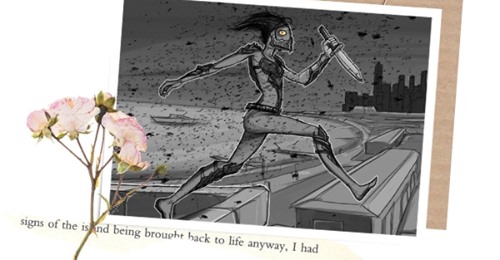
I respect his journey in improving his process to create. I think it is valuable to read. But I like the following quote from him best
"Toward the end, a recommendation from Eliezer Yudkowsky (author of the fan-fiction novel Harry Potter and the Methods of Rationality) gave me a big shot in the arm, almost doubling my readership overnight. "
I have said countless times, how many book authors have been boosted by Beyonce/Oprah/Michelle Obama/JK Rowling... the modern currency is following and when those who are nearer to Cristiano Ronaldo level of followers give your work a wink, it is a boost unlike any other. I am not suggesting that any artwork is less or greater than any other, but the reality is, exposure matters and nothing is more potent in advertising in exposure than when the heavily followed pick an artists. I must add, it has always been that way.
What are the medici's? but the kardashians of their day from a media perspective. What are the Pharoahs? but the presidents of their day from a media perspective.
Artists are always blessed when those who have eyes on them, speak to their art.
Good segment on PAtreon. Thinking on ecurrencies , I think the business model of patreon fits well with the ecurrency market better than strict payment. Whether that is functional long term financially? we will see:)
The reality is, most of the artwork in any art movement isn't remembered or survived well. Does it mean that which is not today was poor? no. Does it mean that most artist must have another way to make money? yes. HAving another way to live comfortably, even if it means less art produced is mandatory.
One thing he didn't say about working as a fiction author, in particular serials, is having a confined plan. I will give an example. One of the books I read this year that I like is the Dungeons and Burglars series. I mention it cause it ended. It is a series, a comic book series. But it ends. One of the problems with writers in my view, is too many of us assume a story has to go on to part 9. No shame exist in a story ending. Yes, a serial means a thing that is in a series, ala a sequence. But, the sequence can end. Does that mean the following to the serial may be upset? yes. But, if that is all you have OR if that is all you can afford to do , then do it! No shame exists in saying, I have a full year to work on a serial and I will give 3/4 to submitting it. And when done, it is done.
I quote the article
"If you find a fandom for your own work, you will discover there are people who make community drama their thing. As much as you wilt in the face of the sort of stuff above, they get their kicks from it, they will stir it up, they'll seek it out, they'll put hours a day into it and to answer it or stay on top of it you'll have to match them in the same number of hours."
That is very true. The entire internet is that way. Some people love negativity.
Article link -
Enjoy
Let's Groove together this holiday season and all year long.
Brought to you by VisitDetroit.com
Follow-us on Facebook to stay up to date on all things Detroit!
https://www.facebook.com/VisitDetroit
***
ONE NATION UNDER A GROOVE
(Detroit’s Tribute to The Funk)Original song by Funkadelic was released in1978 by Warner Bros.
Songwriters: George Clinton Jr., Walter Morrison and Garry Shider.
Published by Bridgeport Music, Inc. BMIPerformed by The Detroit Academy of Arts & Sciences Choir
ft. King Bethel and Anaiya HallDAAS choir includes:
Sincere Austin, Ireland Bradley, Kyndall Bouldin, Drie Boyd, Alonzo Dock, Aniya Elkins, Taylor Glover, Morgann Hicks, Ari'Onah Jackson, Precious Jackson, Jeremiah Johnson, Tania Kato, Lucinda Liggions, Brionna Mahone, DeShawn Marks, Akeylah Mason, Charles McLean, Lillyan Orr-Mercer, Jessie Miller, Joslyn Mosley, Marcus Parker, Brandon Payton, Aja Ross, Aianya Smith, Ashanti Wade, Alanah Wingfield, Rian WoodsChoir Direction by Angela Kee
Dr. Ras Mikey C, Director of ChoreographyAlso featuring:
Chi Amen-Ra, Percussion
Efe Bes, Percussion
Duminie Deporres, Guitar
Amp Fiddler, Synthesizer
Larry Fratangelo, Percussion
LaShawn D. Gary, Keys & Key Bass
Eric “Rain Man” Gaston, DrumsVideo presented by VisitDetroit.Com and the Detroit Metro Convention & Visitors Bureau
Executive producer, director and editor, Bill Bowen, Octane Design
Co-produced by Mike Ellison, AddisDetroitSong produced and arranged by Mike Ellison and LaShawn D. Gary
Spoken word written by Mike EllisonRecorded at the Tempermill in Ferndale, MI
Sound engineers Tony Hamera and Jake Shives
Mixed by Carlos Gunn, Masterpiece Sound Studios
Mastered by Danny Leake, Urban Guerrilla EngineersDirectors of photography: Andrew Stefanik, Iron Coast and Myron Watkins II
Cameras: Ed Knight and Scott WestIt takes a village. Thanks to these people for their help.
All the parents of these beautiful children for allowing their kids to be at the various locations for filming.
Talent coordination by Ann Delisi, AddisDetroit
Interpretive performer, Dr. Ras Mikey C
Appearance by B-Boy, Haleem “Stringz” Rasul
Armen Boladian, Bridgeport Music, Inc.
Scott L. Guy, The Riviera Group Management
Crystal McMahon, DMCVB
PM, Christine Ribusovski, Octane Design
And anyone we may have missed : )
Special thanks to these locations/organizations:
Capoeira Mandinga Detroit
Charles H. Wright Museum of African American History
Detroit Institute of Art
Downtown Detroit Partnership (Capitol Park and Cadillac Square)
Eastern Market
Guardian Building
Great Lakes Crossing Outlets
The Henry Ford Museum of American Innovation (Rosa Parks bus)
The Majestic Theatre
MOCAD
Motown Museum
Narrow Way Cafe
QLINE
The Riverfront Conservancy
Royal Transportation Co.
Yum VillageImage of George Clinton & Parliament Funkadelic performing in Waterfront Park, Louisville, Kentucky on July 4th, 2008 by JMSchneid. This work is licensed under the Creative Commons Attribution 3.0 License.
See why you can't stop Detroit at VisitDetroit.com
#ItsGoTimeDetroit
-
Well... it is another Friday, another day to love, to Oxum, Oshun, Freya, or Venus, another day to Kizomba!
Love is a thing bred from fun and Yäir Fatal side Chalianna L. clearly are having fun, undeterred from any misstep or mistime. I find that blissfully common. We each dance so little in a couple we are bound to have many misses in the early days, keep smiling, keep dancing -
Discover Hidden Narratives: The largest collection of African Comics in the World!
The Kugali Comic Club grants you access to the largest collection of African comics in the world, as well as new chapters of ongoing comics every other day. For this first season, you get a new chapter of Versus every Monday, new chapter of Olwatuuka every Wednesday and new chapter of Nani every Friday. Three issues of Mill City's Finest will round up season one in Septmeber. Season two kicks off after a two week break, so there's a lot more content to come!
https://kugali.com/pages/free-comics
https://kugali.com/pages/read-free-comics
https://kugali.com/pages/read-free-comics-3
Video -
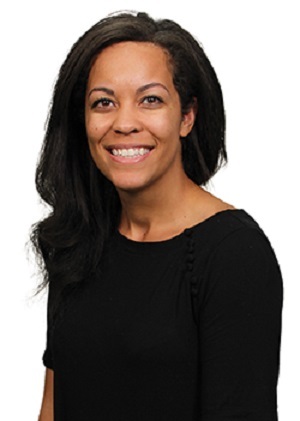
This week on the podcast we are joined by Lateefah Zawistowski to discuss all things OverDrive. As an account manager for OverDrive, Lateefah gives us the inside look at how OverDrive works, how authors can add and market their books on OverDrive, and how libraries utilize the service. She also shares some advice on pricing your books for libraries, what trends she’s currently seeing in library sales, and she discusses the impact of the pandemic on libraries.
- Lateefah tells us about her role as account manager at OverDrive and why she believes publishers and indie authors alike should consider opting their books into OverDrive
- She discusses the borrowing habits of readers and how they change based on the genre, and she tells us why the library is such a great tool for discovery, especially for backlist and midlist titles
- Lateefah explains how libraries purchase books from OverDrive, the multiple purchasing models available to authors and libraries, what time of year libraries are most likely to be purchasing books, and she gives some advice on how to price your eBook for libraries
- She gives us her predictictions for library trends in 2021 and beyond, and explains why the surge of new library users at the beginning of the pandemic, while great, isn’t necessarily enough to support local libraries
- Lateefah discusses OverDrive promotions and she explains how merchandising is essential to discoverability on OverDrive
- She explains the global reach of OverDrive and how many different markets they’re available to, from public libraries to education to corporations, and she discusses the different language markets outside of English Language books
- Lateefah talks to us about current trends in library sales, what books have sold the best during the pandemic, and she explains why genre fiction is having a big moment right now
LISTEN TO THE INTERVIEW OR READ THE TRANSCRIPT USING THE ARTICLE BELOW
KWL - 245 - Optimizing OverDrive with Lateefah Zawistowski - Kobo Writing Life

Happy Audiobook Month! What better way to celebrate than by uploading your audiobooks directly to Kobo! Especially because it’s incredibly easy to do.
How easy, you ask? You can upload your audiobook in only ten steps (and one of those steps is signing into your account)! Here’s how:
Log into your Kobo Writing Life account here: https://www.kobo.com/writinglife
Select the Audiobooks tab on your dashboard. Don’t see the audiobook tab? Send us an email at writinglife@kobo.com and we can activate it for you!
Click “Create new Audiobook”. Once on the audiobook uploading page, you can start inputting your audiobook information. You will first be asked to describe your audiobook. This includes: the title and subtitle (remember to only include text that appears on your book’s cover!), the series name and number if your book is part of a series, the contributors including your narrator, your synopsis, publisher name and imprint, your publication date and release date, your ISBN (this must be a unique ISBN and cannot be the same as your eBook or print book!), and finally the language of your audiobook and whether it’s abridged or unabridged.
You will then be required to enter the categories for your title. These categories will determine how your audiobook is labelled and categorized in the Kobo Store. We recommend selecting three categories for each book to ensure that customers who are browsing through our store have a better chance of finding your titles.
Next, you will need to upload your cover image. We accept cover images in .png, .jpg and .jpeg file formats. We recommend the minimum size of audiobook cover images be at least 600px by 600px. Covers for audiobooks should be square; if they are not, they will be automatically adjusted. Please note: cover images cannot exceed 5 MB in size.
Now you are ready to upload your audio files! You can drop files directly from your computer into the Upload Audio Files section or select the folder on your desktop that contains your audiobook files. We only accept audio files in .mp3 and m4a formats. An individual file cannot exceed 200 MB in size and all files combined cannot exceed 2 GB in size. Please wait for your audio files to be completely uploaded before moving to the next step. You will know when files have been successfully uploaded when the “Listen to confirm content” prompt appears .
Once your files have been completely uploaded, you can then start to make your Table of Contents. The Table of Contents organizes your audiobook to make sure it is in reading order. You can move the files up and down to ensure they are in the correct order and provide the chapter title for the file under the “Name of Content” section. Please note: What you list in the “Name of content” section will appear in the Table of Contents customers use to navigate your audiobook on our apps.
You will then be asked to provide the geographic rights for the title. Please select the countries you own the rights to sell your title in.
The final step is to set the price for your title. Please input the price of your title in all the available currencies. Audiobooks pricing is slightly more complicated than eBooks. The royalty percentage thresholds are as follows:35% royalties for audiobooks priced $2.99 or lower
45% royalties for audiobooks priced over $2.99Please note: If a customer redeems a free trial token for your audiobook, the royalty amount will be 0. If they redeem using a paid token, the royalty amount will be 32%. Otherwise, the royalty amount will be the values displayed above.
Once all steps have been completed you can then select publish! If you have missed any steps, you will receive an error message. Otherwise, your audiobook is in good hands and has been sent for processing. It will soon be available on the Kobo store in 24-72 hours.
Be sure to let us know when you’re publishing new audiobooks so we can add them to our audio new release calendar! < https://docs.google.com/forms/d/e/1FAIpQLSdy1Hzav1WCotnQqd9zOmrUYj5OMcQcqQ-YJl_erliV6apuYQ/viewform >- Show previous comments 1 more
-

@Mel Hopkins you mean overdrive or kobo for audio?
-
.thumb.jpg.afc88dfee9cd2927de0c440601caac13.jpg)
Overdrive - but it would apply to any service. I've noticed that many independent authors and even some traditionally published authors hand over their intellectual property to vendors.
-
-
 1
1
-
- Report
-

good point @Mel Hopkins this is why you need to accept what you will use where. I think artist need to know where certain content they create is going or at least accept where it will go. if you want to be safe, make content to be shared. I know quite a few artists who do that in various fields: drawing/writing/photography
-
-
 1
1
-
- Report
-
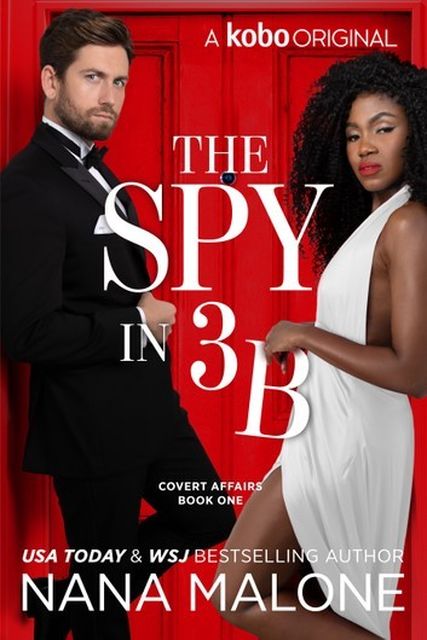
Nana Malone is the bestselling author of sexy, feel-good, action-packed romance novels.
The Spy in 3B is the first book in the Covert Affairs Duet.
What are you reading now?I’m reading a #brownnipplechallenge book called The Road to Rose Bend by Naima Simone. It’s a small town romance, which I don’t normally love — but it’s really good. I really like Naima’s writing; she’s such a seasoned writer and her writing has such an effortless flow to it. [More on the #brownnipplechallenge at the end of this interview – Ed.]
I partnered with Lyric Audiobooks to do Audio in Color where we created a grant program to help writers of color do their first audiobook. And so I’m reading through submissions for that to see what’s going to work well in audio.
Have you found that turning your own books into audiobooks has influenced how you write?
I realized a while ago that I’m basically writing television. My editors are always asking for more emotion, more description, more on the page. But my strong suit has always been banter, as if the characters are on screen. So I’m always ready for audio.
My books that haven’t worked in audio have been the ones where I tried to do more exposition and wrote less naturally to my strengths. I think it’s important for a writer to evolve, but you’ve also got to understand yourself better so you can sink into who you are. I’ve tried to write straight rom-coms, but I just always need a bad guy — someone has to get their comeuppance. So that rom-com with an action twist is really where I like to play, and that’s The Spy in 3B.
It’s almost like a professional athlete who has to decide early on what their position is and play that, and not worry about being bad at playing the other positions.
I was a track and field athlete, and there’s this thing where you have your strength but you ignore it because it doesn’t fit what your idea of your strengths are. For years I was trying to be a short-distance sprinter, and I had a track coach who wanted me to run the half-mile. But I fought it because it wasn’t my own idea of me — and then he made me run it, and I got it. It tapped into a strength I had but didn’t acknowledge.
Series writers are told to “write the same — but different.” And that was me writing the Royals books for three years. I had to figure out what to do next, so it was Royal bodyguards, which kept the same tone. Then Royal cousins, and on and on, all in the world I love which is heists and capers, action-adventure.
“I don’t go to bed until the words are done. If it’s six scenes for the day, then that’s what I need to do, and if I’m smart I’ll get a couple done early.”
Did the pandemic change how you write?
Not so much the pandemic, but when I’m writing I can’t be reading anything at the same time. I’ll be working on a “best friends to lovers” plot, and suddenly I’m finding the guy is turning into a total jerk. It’s because of what I’ve been reading. So when I’m done with edits I’ll gorge on three books before I dive back into it. I have a Christina Lauren on my list that I really want to get to. Sierra Simone has a series that went Priest and Sinner, and I can’t wait for Saint. She’s a friend so I know I’ve got an advance copy for that coming — and that’s the last thing I’ll inhale before I go back into my writing cave for the next Covert Affairs book The Assassin in 3F.
You’re such a busy writer — how did the pandemic impact your focus? I’ve heard from other writers that it was a strange kind of freedom to have no social interactions to turn down when writing needed to get done.
In my case, I went into the pandemic with a heavy schedule and I don’t let myself miss a deadline. I had to find a way.
I used to wake up at 5:30 every morning when my daughter was very young just to get some words in before going on to my full-time job, and sometimes that would mean feeding a baby and typing one-handed. I’ve switched to dictation due to a shoulder injury, so then it became dictation and feeding. I learned I can work in 15-minute chunks and get 500 words out of each chunk. And by building up these 15-minute chunks through the day, I could get about 3000 words, which for me is about a chapter and a half.
So when the pandemic hit, I took that focus and adapted it. When the weather was warm I’d just walk in the backyard and dictate and knock out chapters. But then with remote school, and moving my daughter from her room into the main space of the house, my daughter’s French lessons and Spanish lessons started becoming my French and Spanish lessons, so we had to switch it up again. I became nocturnal and worked after my daughter and husband had gone to bed. I don’t go to bed until the words are done. If it’s six scenes for the day, then that’s what I need to do, and if I’m smart I’ll get a couple done early. I’ve learned my brain is better in the morning.
But you’ve also got to give yourself grace. I moved one deadline and I still think about it. [laughs]
My daughter’s back at school a couple days a week, so I’m adjusting again.
Many authors are driven to write because of the stories they want to read. But you went a step further into how those stories are presented to readers before they’re read — by posing as a model on covers for other writers. How did that come about?
I’ve been published since 2010 and in the beginning, let’s just say I was really naive, and I let my publisher define who I was as a writer. Like with my first book, which was an adoption story about a Black woman who raises her best friend’s kid who’s white, and they marketed me as a “multicultural author” and I figured at the time, okay I guess that’s what I am.
I knew I wanted to write books about brown women just living their happy Black lives — and it wasn’t a huge deal that they were deserving of happily ever afters. I took that on as a mission. Because when I started there was a lot of chick-lit with not a speck of brown to be seen; even in my favourite chick-lit books, there aren’t even secondary characters of colour.
So I remember they just put the hand of this woman on the book about the adoption. And I didn’t think about why they would have done that. Only when I started self-publishing and taking responsibility for my own covers, that’s when I understood the pickings were slim.
“It wasn’t enough for me just to depict a Black woman on the covers — I wanted to show a dark-skinned Black woman.”
At the same time, I was pursuing traditional publishing deals and hearing from agents and publishers that people aren’t really looking for stories with Black women in them. But I was stubborn about my mission and staying authentic to myself. So I started playing with object covers. I also realized that if I’m writing an interracial story, I can put a white guy on the cover, and I can leave it until page 100 that the reader gets a description of a brown nipple.
But last summer, with the racial uprising and sea change that happened, Nina, my publicist, told me I need to go back to my older books and put brown-skinned women on the covers. And I wanted to, because it’s important for little girls like my daughter to see women who look like her who are deserving as anyone of love without complication. But I needed a push. I mean, I knew the reality of the available stock photos.
It wasn’t enough for me just to depict a Black woman on the covers — I wanted to show a dark-skinned Black woman. Look, in Ghana where my family is from I’m a medium brown. But in the US, I’m considered dark-skinned. At the same time, in the stock photos there are some mixed-race girls available, but I knew my books and I knew my heroines were dark-skinned. But also, these are books about royalty, so she’s also going to need to be in a ball gown, jewels, a crown. And then to add a male model to that mix — I couldn’t find anything.
But I knew a photographer whose work I’d bought for other covers, Wander Aguiar, and for 10 years he’d been saying, “You’re beautiful. I want to shoot you.” And I didn’t know what that even meant as a writer — I was content to just write my books. But I was in my Year of Yes, and thanks to Shonda Rhimes this was just another crazy thing I was going to do.
When one of the first photos went out through the Romancelandia newsletter, my phone blew up with messages from Black authors saying thank you, but also white authors who let me know they’d just bought the image for their own use!
I thought I was done. There was a problem and Wander and I made our contribution to solving it.
But then you started posing for covers for your own books. Can you tell me about how your thinking evolved here?
It was the same thing: I was looking for an image and I couldn’t find it, and it was extra-challenging because I was going to need a set of four for the series. So again, I was talking to my publicist and she said, “You’re going to have to do it yourself.”
It was terrifying. It’s one thing if someone doesn’t like the cover on someone else’s book. But to have my image on my books, with my readers judging them… But I did it and the books are selling. The audience had changed. Many more readers are ready to read stories about heroines who don’t look like them.
“I’m old! Modelling requires a significant amount of work to fit into things and look a certain way. I want to eat oreos!”
If suddenly there were many wonderful stock images featuring Black models you could use for your covers, would you hang up the ballgown?
I don’t think we’re going to see that plethora of options in my modelling lifetime. Though I really don’t feel a need to be on my own covers, I’m not opposed to it. When we were talking about cover ideas for The Spy in 3B, we were talking about maybe illustrated, but that’s not something on my other covers and I wanted readers to be able to make the connection, and so when the idea came up to have me on the cover, my first thought was, “Oh no, kale again?” [laughs]
I’m old! Modelling requires a significant amount of work to fit into things and look a certain way. I want to eat oreos!
Having done it before made it easier to say yes. My only concern was whether my face on another cover would be too much, but then I’m also learning The Subtle Art of Not Giving a F***.
You’re a champion for diversity in romance beyond the world of Nana Malone and covers featuring you — can you tell me about the #brownnipplechallenge?
With the #brownnipplechallenge I wanted to support other authors of colour — however they’re publishing, whether traditionally or through a self-publishing route — to put money in their pockets which will give them more access.
I come from a position of privilege, as the child of immigrants. I can get on a plane tomorrow and be in my grandfather’s village. Being Black in America and being able to trace that lineage, that’s a privilege. My father went to an Ivy League school, my mother’s a nurse, and that’s another layer of privilege. I do face racism as any other Black person does in this country, but it’s not the same burden that my brothers and sisters carry who are descended from enslaved people.
Last summer I wanted to take up a form of protest that feels safe for my family and feels authentic and sustainable for me. At the same time, people were sharing information about money they made in this business in #publishingpaidme and I was seeing the disparity between writers of colour, and my non-melanated friends — and I’m really happy for my friends and their success, but something had to change.
“I want people to know in these books there’s kissing, there’s happily-ever-after, there’s sexy-times. It’s not vegetables. It’s cake.”
So the #brownnipplechallenge is basically a book club. A non-performative one. I didn’t want to help anyone stock a “diverse bookshelf” of unread books. There’s this idea that reading books by these authors is like eating your vegetables. And I want people to know in these books there’s kissing, there’s happily-ever-after, there’s sexy-times. It’s not vegetables. It’s cake.
You will show up to these book club meetings having read the book, and we’re going to talk to the author, and it will make it more personal and real. It’ll be fun!
I’m lucky. I’ve had difficulty, but I made it. And there’s only a handful of us at this point. When people name Black romance authors, it’s always the same few: Beverly Jenkins, Brenda Jackson, Kennedy Ryan, Brittainy Cherry, Alyssa Cole, you know. But I know there are thousands who haven’t had the opportunities, so they haven’t earned the money, and they can’t run the ad campaigns to target readers. And when they do run campaigns, targeting readers of Black romance is hard because you’re back down to that small list — and if your books aren’t in the same genres as them, then you’re out of luck. The #brownnipplechallenge is me holding the door open, whether it’s just keeping my foot in the door, or squeezing in a whole hip, I want these authors to get in and have readers find them. ◼
-
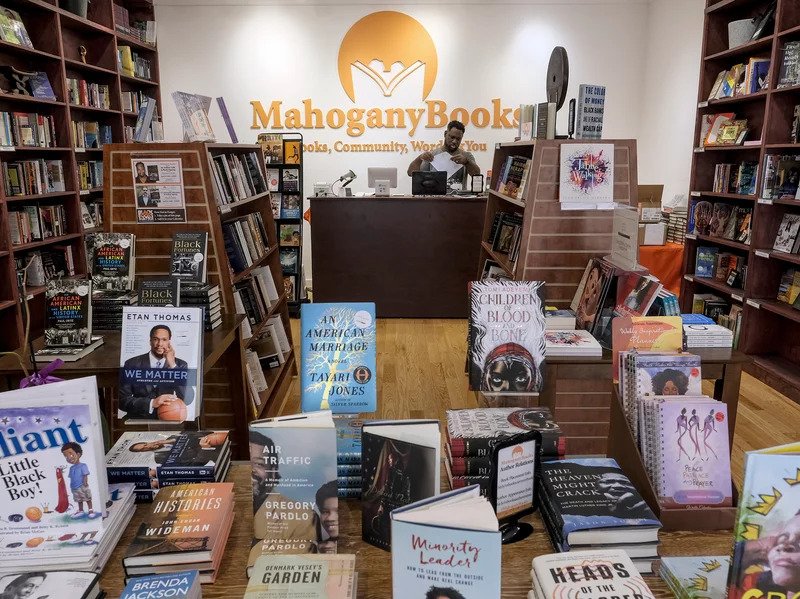
A Moment Or A Movement? Black Bookstore Owners On Business One Year Later
On the day George Floyd was murdered — Monday, May 25, 2020 — there weren't any books exclusively tackling white privilege, anti-Blackness, or policing on the New York Times' Best Sellers list. White Fragility by Robin DiAngelo was the only book to break through the week of May 31, but by June 21, almost 70% of the Times' Best Seller list confronted race.
With the sale of print books rising just over 8% and all unit sales of books surpassing 750 million, Black bookstores would play an integral role in feeding the nation's "sudden" appetite in the plight of Black people.
Black bookstore owners like VaLinda Miller of Turning Page Bookshop in Goose Creek, S.C., can attest to the book boom.
"It was crazy and extremely overwhelming. And I had to hire some more staff members just to mail out the books," Miller says. From June through August, Miller says they "were getting [anywhere] from 100 to 200 to 300 orders a day."
Even though anti-Blackness is an indiscriminate system that pays little attention to borders, Miller was especially shocked by the international shipping addresses.
"About 70% of my customers were from the United States... [but] I was surprised I got so many people from Brazil and Venezuela and so many other foreign countries," Miller says.
She called the surge "unbelievable," and that word resonates twofold for Miller, who had to close her first bookstore, The BookSmith, after only a few years when "people weren't interested" in what she had to offer."
After Miller reopened in June of 2019, she learned from this and took on a different approach when engaging this past summer's burgeoning readers. She prodded customers to buy a book from their favorite genre in addition to the book on race that they were solemnly after. Miller vividly recounts an instance where an elderly white man entered her store looking for White Fragility.
"He said 'My wife told me to come in here and buy a book by a Black author so I can support a Black-owned bookstore,' " Miller says. Her store is the only Black-owned, brick-and-mortar bookstore in the state.
"I want you to support my store," she remembers saying, "but if you're going to buy this book, especially considering what's going on, I need you to also buy another book because I know what you're going to do. You're going to take this book home, put it down, and read the other book," Miller says.
A few months later, this same gentleman stopped by Turning Page Bookstore to confess that he did exactly that.
In other places across the country, Black bookstore owners saw new customers who were engaging in anti-racist reading. Derrick Young, one of the co-owners of Mahogany Books in Southeast Washington, D.C., where the population is more than 90% Black, says he noticed more white customers coming to shop in his store.
"We're definitely seeing more people who seem like they're really willing to do the work; we see people who aren't just picking up notable bestsellers like White Fragility," he says.
Young is able to gauge those willing to "do the work" based on the books they're asking for. He believes it's indicative of where that person is on their journey.
"We see people who are coming in to buy books like Chocolate City from us, or Medical Apartheid," Young says. "Books that are a little bit more specific and dealing with issues that we've been talking about for a long time that create issues of equity in our communities."
Young says that his store, which was recently nominated for Bookstore of the Year, has seen some patron attrition, but admits that was inevitable. He isn't discouraged; he's moved by the continued growth of readers who keep coming back.
"They're coming back not just to purchase books around Black people, but we now have people who are purchasing books specifically about women issues, about LGBTQ issues," Young says. "So, you know, it is really good to see that people are sticking around and trying to do the reading necessary to really open up their minds."
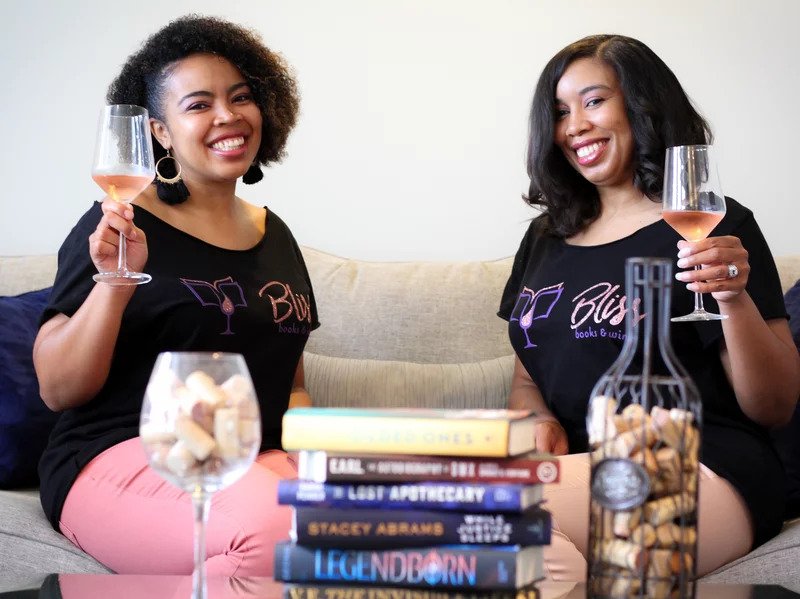
La'Nae Robinson, co-owner of Bliss Books & Wine in Kansas City, Mo., saw something similar in her customers.
"They were forming some of their own book clubs and reading groups and they were looking for recommendations," she says. "They wanted us to help facilitate."
These facilitated conversations led to a bevy of questions.
"Like 'I really didn't understand everything that was going on, but now that I do know, how do I learn more?' And 'What do I do with the information that I have now?' " Robinson recalls.
Bliss Books & Wine made these conversations more immediate to Kansas City and started virtual book conversation with local authors. Robinson believes this is how her bookstore was able to retain some customers who may have stopped by once or twice just to say they supported a Black bookstore and bought an anti-racist book.
"I think it allowed us to bring in those new customers and then introduce them to new books and some of the classics — some of the ones that were more known within the Black community, but not necessarily mainstream or within the white community," she says.
While print book sales are still surging, the Black bookstore owners who spoke to NPR say sales are down for them when compared to last summer, when they were handling 100-300 orders per day. Some of the books purchased at the apex of last summer's protests were never finished. And there are no longer legions of protesters marching for accountability for consecutive days, despite their personal feelings toward the Black Lives Matter global network.
Measuring America's progress on race relations one year after a video of George Floyd's murder at the hands of former police officer Derek Chauvin went viral is both premature and inconclusive. However, if last year's book boom on all things white privilege and anti-racism is a litmus test, then, at least in theory, Americans are intrigued at understanding racism and its byproducts.
photo citation
Derrick Young, co-owner of Mahogany Books in Washington, D.C., says his store has seen new customers in the last year who seem to be "willing to do the work" to educate themselves on issues of race in America.
Bonnie Jo Mount/Getty ImagesLa'Nesha Frazier and La'Nae Robinson own Bliss Books & Wine in Kansas City, Mo. Robinson says that even though readers might have initially come in "to check the box," overall they've retained new customers.
Courtesy Bliss Books & WineWelcome to the Self-Published Science Fiction Competition! Or the spussfic, as we like to call it around here. What in the world is the SPSFC? It’s an opportunity to shine a great big laser beam on wonderful works of self-pubbed science fiction.
Some rules for admission
1) Your book must be a standalone or the first in a series.
2) One book per author. So send your best!
3) It must be a novel, not an anthology.
4) The book must be self-published and available for purchase now.
5) Works must be at least 50,000 words.
Contest link
https://hughhowey.com/the-spsfc-begins/


